Contents
Why Go for Dental Tourism in Tijuana?
Are crippling dental costs in your home country holding you back from the smile you deserve? Many people struggling with expensive bills, long wait times, or complex procedures now have a game-changing solution. Dental Work in Tijuana is transforming smiles and budgets by offering top-tier care right across the border. With ultra-modern clinics, highly skilled specialists, and prices that can save you thousands, Tijuana is fast becoming the trusted hub for dental tourism in Tijuana, offering advanced dental treatments Tijuana and renewed hope for perfect teeth restoration Tijuana.
Let's unlock the massive savings and quality benefits of choosing Dental Work in Tijuana, comparing these options to domestic care, and exposing the truth about affordable dental care Tijuana. We will also explore patient experiences and the high standards of Dental Procedures Tijuana. Join us as we uncover everything about getting your teeth fixed in Mexico, sharing valuable insights on potential costs, leading clinics, and authentic patient testimonials!
Key Information at a Glance
Poor dental health, from chronic pain to missing teeth, can significantly impact quality of life and confidence. Dental Procedures Tijuana are revolutionizing how people approach teeth restoration Tijuana by combining top quality with incredible affordability. Tijuana has established itself as a key destination for advanced medical tourism in Tijuana, presenting promising avenues for patients seeking state-of-the-art dental treatments Tijuana.
Modern dentistry has transformed how we approach treating numerous ailments by harnessing advanced techniques to combat cellular damage and structural issues. Among the various restorative and cosmetic techniques, Dental Work in Tijuana stands out as a highly personalized and powerful method for addressing a wide range of conditions. This comprehensive guide will explore the secret to affordable dental care Tijuana, covering its principles, benefits, associated costs, and what patients can anticipate during their treatment journey.
What is Dental Tourism in Tijuana?
Dental tourism in Tijuana involves traveling from countries with high healthcare costs (primarily the US and Canada) to Tijuana, Mexico, specifically for affordable dental care Tijuana. Patients seek out specialized Dental Procedures Tijuana, such as implants, crowns, veneers, and full mouth reconstruction, due to the significant cost savings and the high quality of care available.
Affordable dental care Tijuana is more than just lower prices; it's a form of strategic healthcare. Unlike conventional treatments that are often prohibitively expensive north of the border, Dental Work in Tijuana aims to provide a lasting, high-quality solution at a fraction of the cost. The procedure typically begins with a comprehensive consultation and digital imaging, followed by a personalized treatment plan for teeth restoration Tijuana.
Before the main treatment, the patient may undergo certain preparatory steps, depending on the specific procedures being treated. The highly trained dental specialists then administer the Dental Treatments Tijuana, often using materials and equipment comparable to, or better than, those used in the US. Following the procedure, patients are monitored to ensure comfort and track the immediate outcome. The goal is for a complete, effective teeth restoration Tijuana, leading to improved function and a confident, beautiful smile.
Why Choose Dental Work in Tijuana?
Tijuana is rapidly becoming the undisputed leader in dental tourism, offering competitive pricing, modern dental facilities, and active engagement in advanced Dental Procedures Tijuana.
Mexico, and particularly Tijuana, has made substantial investments in modern dental practices and specialist training. For patients considering teeth restoration Tijuana, the city offers several compelling advantages:
Candidacy for Dental Work in Tijuana
Dental Work in Tijuana is often considered for individuals with a range of dental needs, including multiple missing teeth, extensive decay, the need for full mouth restoration, or those seeking cosmetic improvements, especially when domestic costs are too high.
Not all patients require the same Dental Procedures Tijuana. The selection process is thorough and involves a comprehensive evaluation of the patient's oral health, medical history, and specific goals for teeth restoration Tijuana. Generally, ideal candidates include those seeking:
A detailed consultation with a specialized dental team in Tijuana will be crucial in determining individual eligibility and the most appropriate treatment plan for Dental Treatments Tijuana.
The Dental Treatments Tijuana Process
The dental tourism in Tijuana protocol typically involves an initial consultation, comprehensive diagnostic work, the restorative or cosmetic procedure (often spanning a few days), and then follow-up care.
The journey through Dental Work in Tijuana is a multi-stage process that requires careful planning and coordination, often condensed for international patients. Here's a general overview of the treatment protocol:
To keep teeth healthy, clinics need to be super clean and safe, making sure everything is spotless and free of germs. The dental clinics in Tijuana are known for their excellent care and welcoming atmosphere, providing treatments that match the quality of those in the U.S. Tens of thousands of people visit Tijuana every month for cosmetic or surgical dental procedures, drawn by the skilled doctors and cheerful, attentive staff. The clinics are also conveniently located just a short drive from San Diego, making it easy for patients to access top-notch care. Overall, Tijuana’s dental centers combine professionalism, safety, and comfort, proving why so many people choose them for their dental needs.
`Dental work in Tijuana varies in price depending on the procedure, the clinic, and the dentist’s experience. For North American patients, Tijuana offers much more practical options, making advanced dental care more accessible. At the same time, the quality of treatment matches American and European standards, so patients can feel confident they are receiving top-notch care at a more reasonable cost.
Dentistry Centers Cost Comparison in Tijuana, Mexico
| Provider | Procedure | Price |
|---|---|---|
| Dental Project Mexico | Dental Crowns, Dentistry | $460 |
| Dental Project Mexico | Dental Veneers, Dentistry | $230 |
| Dental Project Mexico | Dental Implants, Dentistry | $859 |
| ODONTOMEDIK - Holistic Dentist Tijuana | Dental Implants, Dentistry | $3250 |
Dentistry Cost Comparison in Mexico
| Country | Procedure | Price |
|---|---|---|
| United States | Dental Implants, Dentistry | $3500 |
To keep teeth healthy, dental clinics need to be very clean and safe. The Tijuana clinics we like are super good at helping people, just like the ones in America. These clinics help lots of people every month. They are close too—only 20 miles from San Diego, California. This makes them a great choice for getting good care at a lower price. Let’s learn more about the Tijuana clinics and how they can help you keep your smile bright
Watch our videos where we explain dental treatment in Tijuana in more detail.
Patients consistently share positive experiences about dental work in Tijuana, praising the professionalism, skill, and friendliness of the dentists and staff. Many highlight the clinics’ cleanliness, modern equipment, and attentive care, noting that treatments often match or exceed the quality found in the U.S. Visitors also appreciate the convenience of Tijuana’s location and the more affordable options, making it a popular choice for cosmetic and restorative dental procedures. Overall, reviews reflect a strong trust in Tijuana’s dental services and a high level of satisfaction among patients.
Find your question below and read our answer to know more about cheap and quality dental procedures in Tijuana.
1. What types of dental procedures are available in Tijuana?
Tijuana offers a wide range of dental procedures, including dental implants, crowns, veneers, teeth whitening, root canals, and full mouth restorations. Both cosmetic and restorative treatments are available, often using advanced technology and materials comparable to American standards.
2. Are Tijuana dental clinics safe and clean?
Yes, many clinics in Tijuana maintain strict hygiene protocols, sterilizing all tools and following modern safety standards. Patients often note the professional environment, clean facilities, and adherence to international dental care practices.
3. How much does dental work cost in Tijuana?
Costs vary depending on the procedure, the clinic, and the dentist’s expertise. Overall, Tijuana is known for offering high-quality treatments at more affordable prices than in the U.S., making it an attractive option for patients seeking both value and quality.
4. How skilled are the dentists in Tijuana?
Dentists in Tijuana are highly trained, many with certifications and experience comparable to those in the U.S. and Europe. Patients report that the care is professional, and treatments are performed using modern equipment and techniques.
5. Is Tijuana convenient for North American patients?
Absolutely. Tijuana is just a short drive from the U.S.-Mexico border, making travel easy for patients from California and neighboring states. Clinics are accessible, and many patients can schedule treatments over a weekend or a short trip.
6. Can I combine dental work with a vacation in Tijuana?
Yes, many patients take advantage of Tijuana’s location to combine dental treatments with a short getaway. The city offers hotels, restaurants, and cultural attractions, making recovery and travel convenient and enjoyable.
7. How do I choose the right clinic in Tijuana?
When selecting a clinic, consider reviews from past patients, the dentist’s qualifications, the technology used, and the services offered. Planning ahead and confirming treatment details ensures a smooth experience and high-quality results.
Are Dental Implants in Tijuana a Safe Choice for Diabetics?
For individuals with well-managed diabetes, dental implants in Tijuana can be a safe and effective solution for tooth replacement, offering a more affordable alternative to procedures in the US or Canada.For many, the thought of dental work, especially complex procedures like dental implants, can be daunting. Add a chronic condition like diabetes to the mix, and concerns about safety and success naturally arise. Tijuana, Mexico, has emerged as a popular destination for dental tourism due to its attractive pricing and growing number of modern clinics. But for those with diabetes, the question remains: are dental implants in Tijuana a safe and reliable option? This comprehensive guide will address these concerns, providing detailed answers to common questions about dental implants for diabetics in Tijuana, emphasizing the importance of controlled blood sugar and proper care. How does diabetes affect dental implant success? "Diabetes primarily affects dental implant success by influencing the body's healing capacity, increasing the risk of infection, and impacting osseointegration (the fusion of the implant with the jawbone), particularly when blood sugar levels are uncontrolled." Diabetes can pose several challenges to the success of dental implants. Firstly, high blood sugar levels can impair the body's ability to heal efficiently. After a dental implant is placed, the bone and surrounding tissues need to heal and integrate with the implant in a process called osseointegration. Uncontrolled diabetes can slow down this healing process, making it harder for the implant to properly fuse with the jawbone. This delayed healing significantly increases the risk of complications. Secondly, individuals with diabetes are more susceptible to infections due to a compromised immune system. Oral surgery, like implant placement, creates an entry point for bacteria. If the immune response is weakened, the risk of developing an infection at the implant site (known as peri-implantitis) is higher. Such infections can jeopardize the implant's stability and ultimately lead to failure. Therefore, managing blood sugar levels effectively is paramount for ensuring a successful outcome for diabetics undergoing dental implant procedures. What is the importance of blood sugar control for dental implants in diabetics? "Maintaining stable and well-controlled blood sugar levels (specifically an HbA1c below 7%) is crucial for diabetics undergoing dental implant procedures, as it significantly reduces the risks of delayed healing, infection, and implant failure." Blood sugar control is the single most important factor for diabetics considering dental implants. When blood sugar levels are consistently high, it negatively impacts various bodily functions, including wound healing and immune response. For a dental implant to be successful, the bone needs to grow around and bond with the titanium implant surface. This process, osseointegration, is highly dependent on a healthy healing environment. Elevated glucose levels can hinder the activity of bone-forming cells and compromise blood flow to the surgical site, impeding proper integration. Furthermore, uncontrolled diabetes weakens the body's natural defenses against bacteria, making patients more vulnerable to post-surgical infections. An infection around a newly placed implant can prevent osseointegration and lead to the implant failing. Dentists in Tijuana, when treating diabetic patients, will typically require proof of well-controlled blood sugar levels, often through an HbA1c test, to ensure the best possible prognosis for the implant. Are there specific risks for diabetics getting dental implants in Tijuana? "The specific risks for diabetics getting dental implants in Tijuana are similar to those anywhere else: delayed healing, increased infection risk, and potential implant failure, all amplified if blood sugar control is poor, but these risks can be mitigated by choosing a reputable clinic and ensuring good diabetes management." While the general risks for diabetics undergoing dental implant surgery are universal, selecting a clinic in Tijuana requires due diligence. The primary concerns include the quality of care, adherence to sterilization protocols, and the experience of the dental professionals. Reputable clinics in Tijuana understand the unique considerations for diabetic patients and will take necessary precautions. These precautions include thoroughly reviewing the patient's medical history, potentially consulting with their primary care physician, and emphasizing strict blood sugar control before and after the procedure. Patients with diabetes should look for clinics that use modern technology, maintain high hygiene standards, and have dentists with specific experience in treating patients with systemic conditions. While the cost savings in Tijuana can be attractive, compromising on quality of care is not advisable, especially for diabetics. A responsible clinic will not proceed with implant surgery if a patient's diabetes is not adequately managed. How can diabetics improve their chances of successful dental implants? "Diabetics can significantly improve their chances of successful dental implants by achieving and maintaining excellent blood sugar control, practicing rigorous oral hygiene, following all pre- and post-operative instructions diligently, and choosing an experienced dentist." Success for diabetic patients receiving dental implants hinges on a proactive approach to their health. Here are key steps: Optimal Blood Sugar Control: This is non-negotiable. Work with your doctor to get your HbA1c levels within the recommended range (typically below 7%) well before the planned surgery. Consistent monitoring and management are essential. Excellent Oral Hygiene: Diabetics are more prone to gum disease. Maintaining impeccable oral hygiene (brushing twice daily, flossing, and using an antimicrobial mouthwash) reduces bacteria in the mouth, lowering the risk of post-surgical infection. Detailed Medical History: Be completely transparent with your Tijuana dentist about your diabetes history, medications, and any other health conditions. This allows them to tailor the treatment plan appropriately. Follow Pre- and Post-Operative Instructions: Adhere strictly to all instructions regarding medication (especially antibiotics), diet, and activity restrictions. This includes taking prescribed antibiotics to prevent infection. Regular Follow-Up Appointments: Attend all scheduled follow-up visits in Tijuana or with your local dentist to monitor healing and address any potential complications early. Healthy Lifestyle: A balanced diet and regular physical activity can further aid in blood sugar control and overall health, contributing to better healing. By taking these steps, diabetics can create the most favorable conditions for successful osseointegration and long-term implant survival. What should diabetics look for in a Tijuana dental clinic for implants? "Diabetics seeking dental implants in Tijuana should look for clinics with dentists experienced in treating patients with systemic conditions, state-of-the-art facilities, a strong emphasis on sterilization and hygiene, clear communication regarding treatment plans, and a willingness to collaborate with your primary care physician." Choosing the right clinic in Tijuana is critical, particularly for diabetic patients. Here's what to prioritize: Experience with Diabetic Patients: Ask the clinic about their experience and success rates with diabetic patients specifically. An experienced dentist will understand the nuanced challenges and necessary precautions. Modern Facilities and Technology: Look for clinics that utilize advanced diagnostic tools like 3D imaging (CBCT scans) for precise implant placement, and modern surgical techniques. Sterilization and Hygiene Protocols: Ensure the clinic adheres to international sterilization standards. A clean and sterile environment is crucial to prevent infections, which are a higher risk for diabetics. Transparent Communication: The clinic should provide a clear, detailed treatment plan, including costs, potential risks, and expected healing times. They should also be able to communicate effectively in English. Coordination of Care: Ideally, the clinic should be willing to communicate with your primary care doctor or endocrinologist to ensure your diabetes management is aligned with your dental treatment. Reviews and Accreditation: Research patient reviews and look for any international accreditations or affiliations that indicate a commitment to quality and safety. By focusing on these aspects, diabetic patients can make an informed decision and increase their confidence in receiving safe and effective dental implants in Tijuana. What is the typical healing time for dental implants in diabetics? "The typical healing time for dental implants in diabetics can be slightly longer than for non-diabetics, often ranging from 4 to 9 months for osseointegration, provided their blood sugar levels are consistently well-controlled." While the general timeframe for osseointegration for non-diabetics is typically 3-6 months, diabetics may experience a somewhat extended healing period. This is primarily due to the impact of diabetes on the body's regenerative processes and blood supply. For diabetics with well-controlled blood sugar, the healing can be comparable to non-diabetics, but for those with less stable control, it may take longer for the implant to fully fuse with the jawbone. During this healing phase, it is crucial for diabetic patients to maintain their blood sugar levels within the target range, follow all post-operative instructions rigorously, and attend all follow-up appointments. Any signs of infection or discomfort should be reported to the dental clinic immediately. Patience and adherence to care instructions are key to achieving successful osseointegration and a durable dental implant. Will I need special pre-operative preparation as a diabetic? "Yes, diabetics typically require special pre-operative preparation for dental implants, which includes ensuring their blood sugar levels are well-controlled (HbA1c usually below 7%), potentially adjusting medications, and a thorough dental and medical evaluation." Before undergoing dental implant surgery, diabetic patients will likely need to take several preparatory steps to minimize risks and promote successful healing. This often involves: HbA1c Test: Your Tijuana dentist will almost certainly request a recent HbA1c test result. This blood test provides an average of your blood sugar levels over the past two to three months and is a key indicator of diabetes control. A reading below 7% is generally considered ideal for elective surgical procedures. Consultation with Your Physician: It's highly recommended, and often required by reputable clinics, that you consult with your primary care doctor or endocrinologist before the implant procedure. They can help optimize your diabetes management and advise on any medication adjustments (e.g., insulin doses) around the time of surgery. Antibiotics: You may be prescribed prophylactic antibiotics to take before the surgery to reduce the risk of infection, which is a higher concern for diabetics. Oral Health Assessment: A thorough examination of your oral health, including checking for gum disease or existing infections, will be performed. Any active infections or significant gum issues must be addressed before implant placement. Dietary Guidance: You might receive specific dietary recommendations for the days leading up to and immediately following the surgery to help manage blood sugar and aid healing. Proper pre-operative preparation is a vital component of ensuring the safety and success of dental implants for diabetic patients in Tijuana. What are the signs of dental implant failure in diabetics? "Signs of dental implant failure in diabetics can include persistent pain or discomfort around the implant site, swelling, gum recession, mobility of the implant, and pus or discharge, often exacerbated by poor blood sugar control." It's important for diabetic patients to be aware of the signs that an implant might be failing, as early detection can often lead to more effective intervention. These signs are generally similar to those in non-diabetics, but diabetics might experience them more intensely or for a longer duration due to their compromised healing. Look out for: Persistent Pain or Discomfort: While some initial discomfort is normal after surgery, ongoing or worsening pain that doesn't subside with medication could indicate a problem. Swelling and Inflammation: Redness, swelling, or tenderness around the implant that doesn't improve. Gum Recession: The gum tissue pulling away from the implant, exposing more of the implant or abutment. Implant Mobility: Any feeling that the implant is loose or wobbly, even slightly. This is a critical sign of failure of osseointegration. Pus or Discharge: Any foul-smelling discharge or pus coming from the implant site. Difficulty Chewing: Pain or discomfort when biting or chewing on the implant. If any of these symptoms appear, especially in a diabetic patient, it's crucial to contact your dental provider in Tijuana or your local dentist immediately. Prompt attention can sometimes salvage the implant or determine the next course of action. Can dental implants help diabetics maintain a better diet? "Yes, dental implants can significantly help diabetics maintain a better and more balanced diet by restoring their ability to chew a wider variety of nutritious foods, unlike dentures which can restrict food choices." One often-overlooked benefit of dental implants for diabetics is their positive impact on dietary choices. Many healthy foods, such as fresh fruits, vegetables, and lean meats, require strong chewing ability. Missing teeth or ill-fitting dentures can make it difficult and uncomfortable to eat these essential foods, leading diabetics to resort to softer, often processed, and higher-carbohydrate options. This can make blood sugar control even more challenging. Dental implants provide a stable and strong foundation for replacement teeth, much like natural teeth. This allows diabetic patients to comfortably chew a diverse range of foods, including fibrous vegetables and lean proteins, which are crucial for managing blood sugar levels and overall health. By improving masticatory function, implants can contribute to a healthier lifestyle and better diabetes management. What is the long-term success rate of dental implants in well-controlled diabetics? "The long-term success rate of dental implants in well-controlled diabetics is comparable to that of non-diabetics, with studies showing success rates of 90-95% or higher, provided proper blood sugar management and oral hygiene are maintained." Historically, diabetes was considered a strong contraindication for dental implants. However, with advancements in implant technology, surgical techniques, and a deeper understanding of diabetes management, the outlook for diabetic patients has significantly improved. Numerous studies now indicate that if diabetes is well-controlled (with stable HbA1c levels), the success and survival rates of dental implants are very similar to those in the general population. The key differentiator is the degree of blood sugar control. Patients with uncontrolled diabetes do indeed face a higher risk of complications and implant failure. However, for those diligently managing their condition, dental implants offer a predictable and durable solution for tooth replacement, enabling them to enjoy the benefits of a healthy, complete smile for many years. Regular follow-up and continued diabetes management are vital for long-term success. How do Tijuana dental clinics manage diabetic patients during implant surgery? "Reputable Tijuana dental clinics manage diabetic patients during implant surgery by requiring pre-operative blood sugar assessments, coordinating with the patient's physician, administering prophylactic antibiotics, closely monitoring vital signs, and providing specific post-operative care instructions tailored for diabetics." When a diabetic patient undergoes dental implant surgery in a well-regarded Tijuana clinic, a structured approach is typically followed to ensure their safety and the procedure's success. Pre-operative Assessment: Before any surgical steps, the clinic will ask for recent medical records, including HbA1c levels. If the blood sugar is not adequately controlled, they may postpone the procedure and advise the patient to consult their primary care physician to stabilize their condition. Medication Review: They will review all medications, especially those for diabetes, and may advise on timing or temporary adjustments in consultation with the patient's doctor. Prophylactic antibiotics are often prescribed to minimize infection risk. Shorter Appointments: To minimize stress and the impact on blood sugar levels, some clinics might opt for shorter surgical appointments or spread the treatment over multiple visits. Sterile Environment: Strict adherence to sterilization protocols is critical to prevent post-operative infections, which are a higher risk for diabetics. Post-operative Instructions: Detailed instructions will be provided, focusing on pain management, diet, wound care, and continued blood sugar monitoring. Patients will be advised on how to recognize and report any signs of infection. This comprehensive approach helps mitigate the specific risks associated with diabetes in a surgical setting. What is the cost of dental implants in Tijuana for diabetics? "The cost of dental implants in Tijuana for diabetics generally falls within the same range as for non-diabetics, typically between $800 and $1,500 per implant, offering significant savings compared to the US while maintaining high standards of care for patients with controlled diabetes." One of the primary reasons people travel to Tijuana for dental work is the substantial cost savings. For diabetic patients, the cost structure for dental implants usually doesn't differ significantly from that for non-diabetic patients, assuming their diabetes is well-controlled. The total cost will depend on several factors: Number of Implants: The more implants needed, the higher the overall cost. Type of Implant: Different implant brands and materials can have varying prices. Additional Procedures: If bone grafting, sinus lifts, or extractions are required, these will add to the cost. Diabetics are sometimes more prone to bone loss, potentially increasing the need for grafts. Clinic and Dentist Experience: Highly reputable clinics with extensively experienced dentists may have slightly higher fees. Despite these variables, the cost in Tijuana remains a fraction of what one would pay in the United States or Canada, often allowing diabetic patients to access high-quality care that might otherwise be unaffordable. It is always recommended to get a detailed quote before starting treatment. Can poorly controlled diabetes lead to dental implant failure? "Yes, poorly controlled diabetes significantly increases the risk of dental implant failure by impairing wound healing, compromising osseointegration, and elevating susceptibility to infections like peri-implantitis." When diabetes is not managed effectively, the body's systems are constantly under stress, making it difficult to heal and fight off disease. In the context of dental implants, this means: Delayed and Impaired Healing: High blood sugar levels hinder the normal repair processes, preventing the jawbone from properly fusing with the implant. Compromised Osseointegration: The critical bond between the bone and the implant might not form or might be weaker, leading to implant instability. Increased Infection Risk: A weakened immune system makes diabetics highly susceptible to bacterial infections around the implant. These infections can rapidly destroy the supporting bone, leading to implant loosening and failure. Peri-implantitis: This inflammatory condition, specifically affecting the tissues around dental implants, is more prevalent and aggressive in diabetics with poor blood sugar control, often resulting in bone loss and implant failure. For these reasons, most ethical dentists in Tijuana will strongly advise against dental implant surgery for patients with poorly controlled diabetes until their blood sugar levels are stable. How does gum health relate to dental implants in diabetics? "Gum health is intrinsically linked to the success of dental implants in diabetics, as diabetes increases the risk of gum disease (periodontitis), which, if present, can negatively impact osseointegration and lead to peri-implantitis." Diabetics are more susceptible to gum disease, also known as periodontal disease, due to their altered immune response and higher blood sugar levels that create a favorable environment for bacteria. Healthy gums are fundamental for the long-term success of dental implants. Pre-existing Gum Disease: If a diabetic patient has active gum disease before implant placement, the bacteria can easily spread to the surgical site, leading to infection and implant failure. Therefore, any existing gum disease must be treated and resolved before considering dental implants. Peri-implantitis Risk: Even after successful implant placement, diabetics remain at a higher risk for peri-implantitis, an infection and inflammation of the tissues surrounding the implant. This condition can lead to bone loss around the implant and ultimately failure. Importance of Oral Hygiene: Strict and consistent oral hygiene, including regular dental check-ups, is even more critical for diabetics to prevent gum disease and maintain the health of their dental implants. Dentists in Tijuana, when evaluating diabetic patients for implants, will pay close attention to their gum health and address any issues before proceeding with the implant procedure. Is dental tourism in Tijuana safe for diabetics seeking implants? "Dental tourism in Tijuana can be safe for diabetics seeking implants if they choose accredited clinics with experienced dentists, ensure their diabetes is well-controlled, and meticulously follow all pre- and post-operative instructions." The safety of dental tourism in Tijuana for diabetics is not inherently different from safety for non-diabetics; it hinges on choosing the right provider and being a responsible patient. Tijuana has many highly reputable, modern dental clinics that cater specifically to international patients and adhere to high standards of care, comparable to those in the US or Canada. Many dentists in Tijuana have received training in the US and use the same high-quality materials and technologies. However, like any medical tourism destination, there are also clinics that may not meet these standards. For diabetic patients, who have unique health considerations, it is even more vital to: Research Thoroughly: Look for clinics with excellent reviews, verifiable credentials, and clear information about their experience with diabetic patients. Communicate Openly: Be transparent about your diabetes and all health conditions. A good clinic will ask detailed health questions. Ensure Proper Management: Do not travel for implant surgery if your blood sugar levels are uncontrolled. This is the biggest risk factor for complications. Plan for Aftercare: Understand the follow-up care requirements, whether in Tijuana or with a local dentist. By taking these precautions, diabetics can safely benefit from the affordability and quality of dental implants in Tijuana. If you're considering dental implants and managing diabetes, explore PlacidWay for solutions related to medical tourism and healthcare services. We can help you connect with reputable clinics that prioritize your safety and health.
How much is dental work in Mexico?
Considering dental work in Mexico? You're not alone! Many are discovering that high-quality dental care south of the border can be significantly more affordable than in the US or Canada. Generally, you can expect to pay 50-70% less for various dental procedures in Mexico, making it an attractive option for everything from routine check-ups to complex smile makeovers. This guide will walk you through everything you need to know about the cost of dental work in Mexico. We'll break down prices for common treatments, explore factors influencing these costs, and address important questions about quality, safety, and finding the best dentists. Get ready to smile brighter, knowing you're making an informed and budget-friendly decision for your dental health. How Much Does Basic Dental Work Cost in Mexico? "Basic dental procedures in Mexico are very affordable, with check-ups and cleanings often costing between $30 and $50, basic fillings ranging from $40 to $80, and tooth extractions typically priced between $50 and $100." When it comes to maintaining your oral health, routine dental care is essential. In Mexico, these foundational services are significantly more accessible due to lower dental costs. For instance, a comprehensive dental check-up, which might include an examination and professional cleaning, is often a fraction of what you'd pay in the United States. Similarly, treating a cavity with a basic filling or having a problematic tooth extracted is considerably less expensive. These lower prices don't mean a compromise on quality. Many Mexican dental clinics cater to international patients and are equipped with modern technology. The cost savings are often attributed to lower overhead, including operational expenses and labor costs, rather than a reduction in the standard of care or the quality of materials used. This makes Mexico an excellent choice for keeping up with regular dental maintenance without breaking the bank. What Is the Average Cost of Dental Implants in Mexico? "The average cost of a single dental implant in Mexico typically ranges from $700 to $1,800. This is a substantial saving compared to the US, where the same procedure can cost $3,000 to $6,000." Dental implants in Mexico are one of the most sought-after procedures by dental tourists due to the dramatic cost difference. An implant involves surgically placing a titanium post into the jawbone, which then acts as an artificial root for a replacement tooth (crown). The price in Mexico often includes the implant fixture and sometimes the abutment, though the crown is usually a separate cost. Even when factoring in the crown and any necessary preliminary work like bone grafts (if needed), the total expense for a dental implant in Mexico remains significantly lower. For example, an implant with a crown might cost around $1,200 in Mexico, compared to $4,000 or more in the US. This makes restoring missing teeth with a permanent, natural-looking solution much more attainable. How Much are All-on-4 Dental Implants in Mexico? "All-on-4 dental implants in Mexico generally cost between $3,600 and $11,990 per jaw. This can represent savings of up to 85% compared to prices in the USA and Canada, which can range from $20,000 to $30,000 or more per jaw." The All-on-4 (or All-on-X) technique is a revolutionary full-arch restoration that uses four to six implants to support a full set of fixed, non-removable replacement teeth. This procedure is ideal for individuals who have lost most or all of their teeth and are looking for a more stable and permanent alternative to traditional dentures. The significant cost savings in Mexico make this life-changing treatment accessible to a wider range of patients. The price for All-on-4 implants in Mexico usually includes the surgical placement of the implants, the abutments, and a fixed hybrid bridge or denture for one arch. Despite the lower cost, reputable clinics in Mexico use high-quality implant systems and materials, often the same brands used in US dental offices. Always ensure your chosen clinic provides a detailed breakdown of what's included in their All-on-4 package. What Is the Price of Dental Crowns in Mexico? "The cost of dental crowns in Mexico typically ranges from $250 to $600 per crown. The price can vary depending on the material used, such as porcelain, zirconia, or porcelain-fused-to-metal (PFM)." Dental crowns are tooth-shaped caps placed over a damaged or weakened tooth to restore its shape, size, strength, and appearance. In Mexico, you can get high-quality crowns for a fraction of the US price, where they might cost $800 to $2,000 per crown. Zirconia crowns, known for their durability and aesthetic appeal, might be at the higher end of the price range in Mexico but are still considerably cheaper than in many other countries. The affordability of dental crowns in Mexico means patients don't have to delay necessary restorative work or opt for less durable solutions due to budget constraints. Many clinics offer same-day crowns using CAD/CAM technology, providing convenience alongside cost savings. How Much Does a Root Canal Cost in Mexico? "A root canal in Mexico generally costs between $200 and $500. This price often includes the procedure itself, though the final crown needed to protect the tooth afterward will be an additional cost." A root canal treatment is necessary when the pulp inside a tooth becomes infected or inflamed. The procedure involves removing the infected pulp, cleaning and disinfecting the inside of the tooth, and then filling and sealing it. In the US, a root canal can cost anywhere from $700 to $1,500 or more, especially for molars. The cost of a root canal in Mexico is significantly lower, making it easier for patients to save an infected tooth rather than opting for extraction. It's important to remember that after a root canal, a dental crown is usually required to restore the tooth's strength and functionality, so this should be factored into the overall treatment cost. What's the Cost of Veneers in Mexico? "Dental veneers in Mexico typically cost between $300 and $800 per tooth. The price depends on the material, with porcelain veneers generally being more expensive than composite resin veneers." Veneers are thin, custom-made shells designed to cover the front surface of teeth to improve their appearance. They can correct issues like discoloration, chips, gaps, or misalignments. In the US, porcelain veneers can cost from $800 to $2,500 per tooth, making a full smile makeover quite expensive. The more affordable price of veneers in Mexico allows many to achieve their dream smile. Reputable cosmetic dentists in Mexico use high-quality materials and advanced techniques to create natural-looking and durable results. Patients can often get a full set of veneers for what a few might cost in their home country. How Much are Dentures in Mexico? "The cost of full dentures in Mexico can range from approximately $350 to $900 per arch (upper or lower). Partial dentures will typically cost less." Dentures are removable replacements for missing teeth and surrounding tissues. The cost in Mexico is considerably lower than in the US, where full dentures might cost $1,000 to $3,000 per arch. The price for dentures in Mexico can vary based on the materials used (e.g., acrylic, porcelain teeth) and the type of denture (complete or partial). Many patients find that they can obtain well-fitting, aesthetically pleasing dentures in Mexico without the hefty price tag. Clinics often work efficiently, allowing patients to receive their new dentures within a relatively short timeframe. Why is Dental Work So Much Cheaper in Mexico? "Dental work is cheaper in Mexico primarily due to lower operating costs, including rent for clinic space, staff salaries, and less expensive dental education. Additionally, the overall cost of living is lower, and there's less administrative burden from insurance companies." It's a common misconception that lower prices mean lower quality. However, the reality is that Mexican dental practices can offer more affordable services because their overheads are significantly less than those in countries like the US or Canada. Dentists in Mexico often graduate with less student debt, and malpractice insurance is typically less costly. These savings are passed on to patients, allowing them to access high-quality dental care in Mexico with state-of-the-art technology and materials that meet international standards, all at a reduced price point. It's not about cutting corners on quality but rather operating within a more economical environment. Is it Safe to Get Dental Work Done in Mexico? "Yes, getting dental work in Mexico is generally safe, provided you do thorough research and choose a reputable, accredited clinic with qualified dentists. Many clinics adhere to international standards of hygiene and care." Safety is a primary concern for anyone considering medical or dental tourism. The key to a safe experience is diligence in selecting your dental provider. Look for clinics with certifications from organizations like the American Dental Association (ADA) (some dentists may be ADA members) or the Mexican Dental Association. Check for reviews, testimonials, and before-and-after photos from previous patients. Many dentists in Mexico have received training in the US or Europe and are experienced in treating international patients. Modern clinics in popular dental tourism destinations often have English-speaking staff and are equipped with advanced technology. While isolated incidents can occur anywhere, choosing a well-vetted clinic significantly minimizes risks. How Do I Find a Good Dentist in Mexico? "To find a good dentist in Mexico, look for credentials and qualifications, read patient reviews and testimonials, check for clinic accreditations, and ask for before-and-after photos of their work. Consider using reputable medical tourism facilitators." Finding a qualified and trustworthy dentist is crucial for a successful dental tourism experience. Start by researching clinics in your chosen destination. Look for dentists who are members of recognized dental associations and have undergone continuous education and specialized training. Online reviews on platforms like Google, Yelp, and specialized dental tourism websites can provide valuable insights from previous patients. Don't hesitate to contact clinics directly to ask questions about their dentists' experience, the materials they use, and their sterilization protocols. Some clinics offer online consultations. Reputable medical tourism agencies can also help connect you with vetted and reliable dentists in Mexico, streamlining the research process. What are the Most Popular Cities for Dental Work in Mexico? "The most popular cities for dental work in Mexico include Tijuana, Los Algodones (often called 'Molar City'), Cancun, Puerto Vallarta, and Mexico City. These cities have a high concentration of dental clinics catering to international patients." Border towns like Tijuana and Los Algodones are particularly popular due to their easy accessibility from the US. Los Algodones, for example, has hundreds of dental offices within a few blocks, making it a hub for dental tourism. Coastal destinations like Cancun and Puerto Vallarta combine dental treatment with the appeal of a vacation. These cities are well-equipped to handle dental tourists, with many clinics having English-speaking staff and experience with common concerns of international patients. The choice of city often depends on factors like proximity, travel costs, and personal preference for the type of destination. What Should I Expect When Getting Dental Work in Mexico? "Expect professional service, often with English-speaking staff, modern facilities, and transparent pricing at reputable clinics. You'll typically have an initial consultation, a detailed treatment plan, and then the procedures, which may require one or multiple visits." When you arrive for your dental work in Mexico, the process usually begins with a thorough examination, which may include X-rays or 3D CBCT scans. The dentist will discuss your dental issues, treatment options, and provide a detailed cost estimate. Communication is key, so ensure you understand the proposed plan and feel comfortable asking questions. Many clinics in Mexico are accustomed to working with international patients and understand the need for efficient scheduling, especially if your time is limited. Treatments can range from a single-day visit for simpler procedures to multiple trips over several months for complex cases like implants. Be prepared for follow-up care instructions and potential return visits if necessary. Are Dental Materials Used in Mexico High Quality? "Yes, reputable dental clinics in Mexico use high-quality materials that are often the same brands and standards as those used in the US and Europe. This includes materials for implants (e.g., titanium), crowns (e.g., zirconia, E-max), and fillings." A common concern is whether the lower cost of dental work in Mexico means a compromise on the quality of materials. However, established clinics serving international patients understand that using substandard materials would harm their reputation and business. They typically source materials from reputable international suppliers. It's always a good idea to ask your dentist about the specific materials they plan to use for your treatment and if they come with any warranties. Knowing that your dental work in Mexico will be performed with durable, biocompatible, and aesthetically pleasing materials can provide peace of mind. Are There Hidden Costs for Dental Work in Mexico? "While reputable clinics are generally transparent about pricing, potential hidden costs for dental work in Mexico could include charges for X-rays, anesthesia, bone grafts (if needed for implants), temporary crowns, or medications. Always ask for a comprehensive, itemized quote beforehand." To avoid surprises, it's crucial to have a clear understanding of what is included in the initial price estimate. Ask specific questions: Are diagnostic tests like X-rays or CT scans included? What type of anesthesia is covered? If you're getting implants, is the cost of a potential bone graft or sinus lift factored in? Are post-procedure medications or temporary restorations part of the package? A trustworthy clinic will provide a detailed treatment plan with all associated costs laid out. Don't hesitate to clarify any doubts. Also, factor in travel, accommodation, and food expenses, as these are part of the overall cost of your dental trip, though not "hidden dental costs" per se. How Does the Cost of Dental Work in Mexico Compare to the US? "The cost of dental work in Mexico is typically 50-70% lower than in the United States. For major procedures like implants or full-mouth restorations, savings can amount to tens of thousands of dollars." This significant price difference is the primary driver for dental tourism to Mexico. For example: A dental cleaning might be $30-$50 in Mexico vs. $150-$300 in the US. A porcelain crown could be $250-$600 in Mexico vs. $800-$2,000 in the US. A single dental implant (including crown) might be around $1,200-$2,000 in Mexico vs. $3,000-$6,000+ in the US. All-on-4 implants can be $7,000-$15,000 per arch in Mexico vs. $20,000-$30,000+ in the US. These substantial savings allow individuals to access necessary or desired dental treatments that might be prohibitively expensive in their home country, even when factoring in travel and accommodation. Do US Dental Insurance Plans Cover Treatment in Mexico? "Some US dental insurance plans may offer out-of-network coverage for dental work performed in Mexico, but this varies greatly by provider and policy. It's essential to check with your insurance company directly before seeking treatment." While many Mexican dental clinics cater to cash-paying patients (which is part of why they can offer lower prices), some may help you with the paperwork required to claim reimbursement from your US insurer if you have out-of-network benefits. However, do not assume your insurance will cover the costs. Before your trip, contact your insurance provider to understand their policy on international dental care. Ask about reimbursement procedures, required documentation (itemized bills, treatment codes), and any limitations. Some patients choose to pay out-of-pocket in Mexico due to the significant savings, regardless of their insurance coverage. Ready to explore affordable, high-quality dental solutions? PlacidWay can help you connect with trusted dental providers in Mexico and around the world. Discover your options and start your journey to a healthier, more confident smile today!
How Much Does Dental Implants Cost in Tijuana, Mexico?
The cost of dental implants in Tijuana is typically 50-75% lower than in the United States. A single implant can cost as little as $1,000, and a full-arch All-on-4 procedure often ranges from $7,000 to $12,000, offering significant savings without compromising on quality. If you're facing tooth loss, you know that the cost of dental implants in the United States can be astronomical, often putting a perfect smile out of financial reach. This reality has led millions of Americans to look for high-quality, affordable alternatives, and for many, the answer lies just across the border in Tijuana, Mexico. For years, Tijuana has cultivated a reputation as a world-class hub for dental tourism, offering state-of-the-art technology and highly skilled, often U.S.-trained, dentists at a fraction of the price you'd pay at home. The prospect of saving thousands, or even tens of thousands, of dollars is understandably appealing, but it also brings up important questions about quality, safety, and the true final cost. This guide is designed to be your definitive resource for understanding the cost of dental implants in Tijuana in 2025. We will break down the pricing for everything from a single tooth replacement to a complete full mouth restoration. More importantly, we'll explain *why* it's so much more affordable and what you should look for to ensure you're receiving the best possible care. We'll cover the factors that influence pricing, potential hidden costs, and how to choose a reputable clinic. By the end of this article, you'll have a clear and realistic picture of what to expect, empowering you to make a confident and informed decision about investing in your smile and your health. How much does a single dental implant cost in Tijuana? "A single dental implant in Tijuana, including the titanium post, the abutment, and a high-quality crown, typically costs between $1,000 and $1,800. This represents a savings of over 60% compared to the average U.S. price." When you get a quote for a single dental implant, it's essential to confirm that it includes all three necessary components. In the U.S., these parts are often billed separately, leading to a final cost that can easily exceed $5,000. In Tijuana, reputable clinics are accustomed to providing all-inclusive pricing for a complete restoration. The quality of materials is not a concern at top clinics. They use the exact same globally recognized, FDA-approved implant brands as dentists in the United States, such as Nobel Biocare, Straumann, and BioHorizons. The cost difference is not due to inferior products but to economic factors. Component Average Cost in Tijuana Average Cost in the U.S. Titanium Implant Post $750 - $900 $1,500 - $2,500 Abutment & Crown $500 - $900 $1,500 - $3,000 Total Complete Implant $1,000 - $1,800 $3,500 - $5,500 What is the price of All-on-4 dental implants in Tijuana? "The cost for an All-on-4 dental implant procedure in Tijuana typically ranges from $7,000 to $12,000 per arch. This includes the four implants and a custom, high-quality fixed denture, offering a savings of up to 70% compared to the U.S." The All-on-4 treatment concept is a revolutionary solution for patients who have lost all or most of their teeth in an arch. It uses four strategically placed implants to permanently secure a full bridge, restoring a complete, natural-looking, and fully functional smile. Given that this same procedure regularly costs $24,000 to $30,000 per arch in the United States, the savings in Tijuana are life-changing for many. The final price can depend on the material used for the permanent bridge. A high-quality acrylic hybrid is the standard and most affordable option. Upgrading to a more durable and aesthetic Prettau Zirconia bridge will be at the higher end of the price range but is still a fraction of the U.S. cost. Be sure to discuss these material options with your dentist during your consultation. What can I expect to pay for a full mouth restoration in Tijuana? "A full mouth restoration with dental implants in Tijuana, which typically involves restoring both the upper and lower arches with an All-on-4 or All-on-6 system, generally costs between $14,000 and $25,000." For patients needing a complete smile makeover, the cost savings in Tijuana are truly staggering. A full mouth restoration that might cost between $50,000 and $90,000 in the U.S. can be achieved for the price of a single arch north of the border. This includes the surgical placement of all implants (usually 8 to 12 for a full mouth) and the fabrication of two custom, permanent bridges. Some patients may opt for an All-on-6 or All-on-8 system for even greater stability, especially if they have lower bone density. While this adds to the cost, the price remains incredibly competitive. An All-on-6 procedure in Tijuana, for example, might cost around $9,000 to $13,000 per arch. Why are dental implants so much cheaper in Tijuana? "Dental implants are cheaper in Tijuana not because of lower quality materials or less skilled dentists, but due to the country's lower cost of living, reduced overhead for clinics, and the absence of high malpractice insurance costs for dentists." It's a common misconception that lower prices must mean lower quality. In the case of Tijuana's top dental clinics, this is simply not true. The economic realities are just different. Key factors contributing to the lower prices include: Lower Operational Costs: Everything from rent for a state-of-the-art clinic to staff salaries and utility bills is less expensive in Mexico. Lower Education Costs: Dentists in Mexico graduate with significantly less student loan debt than their American counterparts, allowing them to charge less for their services. No Malpractice Insurance Burden: U.S. dentists pay tens of thousands of dollars annually for malpractice insurance, a cost that is passed on to patients. This is not a standard requirement in Mexico. Competitive Market: The high volume of dental tourism in Tijuana creates a competitive environment that helps keep prices affordable. Are there hidden costs I should be aware of? "While reputable Tijuana clinics are very transparent with their pricing, you should always confirm what is included in your quote. Procedures like bone grafts, sinus lifts, or tooth extractions may be required and could be an additional cost if not part of an all-inclusive package." Before you can receive implants, your mouth must be ready. This can sometimes require preparatory procedures. Always ask your clinic if the following are included in your treatment plan: 3D CT Scan: Essential for proper diagnosis and planning. This is usually included. Tooth Extractions: If you have failing teeth that need to be removed. Bone Grafting: Necessary if you have experienced bone loss and don't have enough jawbone to support an implant. Sinus Lift: A specific type of bone graft for the upper jaw. IV Sedation: If you prefer to be sedated during the surgery, this may be an additional fee. The best clinics will provide a detailed, itemized quote after your initial evaluation so there are no surprises. Is the quality of dental implants in Tijuana the same as in the US? "Yes, the quality of care and materials at top-tier dental clinics in Tijuana is on par with, and sometimes exceeds, the standards in the United States. They use identical implant brands, advanced technology like CAD/CAM systems, and follow strict sterilization protocols." This is the most important question for any prospective dental tourist, and the answer is a resounding yes. The best Tijuana dentists have invested heavily in their practices to attract international patients. They boast modern, clean facilities and use the same advanced technology found in the best U.S. clinics, including 3D cone beam CT scanners for precise implant placement and in-house labs for custom-crafting crowns and bridges. Furthermore, many of these dentists are members of the American Dental Association (ADA) and have received advanced training in the U.S. or Europe. They are committed to providing a level of care that meets and exceeds international standards. By choosing a well-vetted, highly-reviewed clinic, you can be confident that you are not sacrificing quality for cost. Ready to transform your smile at a price you can afford? PlacidWay is your trusted partner for finding safe, high-quality dental care in Tijuana. We can connect you with pre-vetted, top-rated clinics and help you get a personalized, no-obligation quote for your dental implants. Take the first step towards a confident new smile today!
What is the Cost of All on 4 Dental Implants in Tijuana, Mexico?
The cost of All on 4 dental implants in Tijuana, Mexico, typically ranges from $7,000 to $15,000 per arch. This price is significantly lower than in the US, making Tijuana a popular destination for this life-changing dental procedure. Are you considering All on 4 dental implants but are concerned about the high costs in your home country? You're not alone. Many people dream of a restored smile but are held back by the price tag. This is where dental tourism to destinations like Tijuana, Mexico, comes into the picture. For years, Tijuana has been a beacon of hope for those seeking high-quality, affordable dental care, and All on 4 dental implants in Tijuana are one of the most sought-after procedures. But what exactly is the cost, and what should you expect? This guide is designed to answer all your pressing questions about the cost of All on 4 dental implants in Tijuana, Mexico. We'll break down the pricing, explore the factors that influence the final cost, and provide you with the information you need to make an informed decision. We understand that this is a significant step, and our goal is to provide you with a comprehensive, easy-to-understand overview in a friendly and approachable tone. Let's delve into the world of affordable, top-tier dental care that awaits you just across the border. What are All on 4 Dental Implants? "All on 4 is a revolutionary dental implant technique that replaces a full arch of teeth using only four strategically placed implants. These implants act as a secure foundation for a permanent, non-removable bridge." All on 4 dental implants are a remarkable solution for individuals who have lost most or all of their teeth. Instead of using an implant for each missing tooth, this technique utilizes four titanium posts surgically placed into the jawbone. Two implants are placed vertically in the front of the mouth, and two are placed at an angle in the back. This strategic placement maximizes the use of available bone and often eliminates the need for bone grafting, a common requirement in traditional implant procedures. Once the implants are in place, a custom-made prosthetic dental bridge is attached, giving you a brand-new, fully functional set of teeth. The result is a natural-looking smile that allows you to eat, speak, and smile with renewed confidence. The All on 4 concept is a game-changer in implant dentistry, offering a more efficient and cost-effective alternative to traditional full-mouth reconstructions. What is the Average Cost of All on 4 Dental Implants in Tijuana? "The average cost for a single arch of All on 4 dental implants in Tijuana is between $7,000 and $15,000. For a full mouth restoration (both arches), you can expect to pay between $14,000 and $30,000." The significant price difference compared to the United States, where the same procedure can cost upwards of $25,000 to $50,000 per arch, is the primary reason why so many people choose to get their All on 4 dental implants in Tijuana. This cost-effectiveness does not mean a compromise on quality. Reputable clinics in Tijuana use the same high-quality materials and adhere to the same international standards as their US counterparts. The table below provides a general comparison of the costs: Procedure Average Cost in Tijuana (per arch) Average Cost in the US (per arch) All on 4 Dental Implants $7,000 - $15,000 $25,000 - $50,000 It's important to remember that these are average costs. The final price will be determined by your individual needs and the specifics of your treatment plan. What Factors Influence the Cost of All on 4 Implants in Tijuana? "Several factors can affect the final cost of your All on 4 treatment in Tijuana, including the type of prosthetic material, the need for additional procedures like tooth extractions or bone grafting, and the specific dental clinic you choose." Understanding the variables that contribute to the overall cost is crucial for budgeting and planning. Here's a breakdown of the key factors: Prosthetic Materials: The material used for your final dental bridge significantly impacts the price. Acrylic: This is the most affordable option. It's a durable and aesthetic choice, but it may not be as long-lasting as other materials. Porcelain: Porcelain bridges offer a more natural appearance and are very durable. They are a mid-range option in terms of cost. Zirconia: Zirconia is a premium material known for its exceptional strength, durability, and lifelike aesthetics. It is the most expensive option but offers the best long-term value. Nano-Ceramic: This is a newer, advanced material that combines the strength of ceramic with the flexibility of resin, providing excellent durability and aesthetics. Additional Procedures: Tooth Extractions: If you have any remaining failing teeth, they will need to be extracted before the implants can be placed. The cost of extractions is usually separate from the All on 4 package. Bone Grafting: While the All on 4 technique is designed to minimize the need for bone grafts, some patients with significant bone loss may still require it to ensure the stability of the implants. Sinus Lifts: For the upper arch, a sinus lift may be necessary if there isn't enough bone height to place the implants. Clinic and Surgeon's Expertise: The reputation and experience of the dental clinic and the oral surgeon will also play a role in the cost. Highly-regarded clinics with experienced, board-certified surgeons may have slightly higher prices, but this often translates to a higher quality of care and better outcomes. What is Typically Included in an All on 4 Package in Tijuana? "Most All on 4 packages in Tijuana include the initial consultation, 3D CT scans, the surgical placement of the four implants, a temporary prosthesis, and the final permanent bridge. However, it's essential to confirm the specifics with your chosen clinic." When you receive a quote for All on 4 dental implants in Tijuana, it's crucial to understand what is covered. A comprehensive package should ideally include: Initial Consultation and Examination: A thorough evaluation of your oral health. 3D CT Scan: Advanced imaging to create a detailed treatment plan. Surgical Procedure: The placement of the four titanium dental implants. Anesthesia: Local anesthesia is standard, and some clinics may offer sedation options for an additional fee. Temporary Prosthesis: You will receive a temporary set of teeth on the same day as your surgery, so you won't leave the clinic without a smile. Final Permanent Prosthesis: The fabrication and placement of your final, high-quality dental bridge after the healing period. Follow-up Appointments: Post-operative check-ups to monitor your healing. Always ask for a detailed breakdown of the costs and what's included to avoid any surprises. Are There Any Hidden Costs I Should Be Aware Of? "While reputable clinics in Tijuana are transparent about their pricing, it's important to inquire about potential additional costs such as extractions, bone grafting, sedation, and prescription medications, which may not be included in the standard All on 4 package." To ensure a smooth and predictable experience, it's wise to have a clear understanding of all potential expenses. Be sure to ask your clinic about: The cost of any necessary pre-operative procedures. The price difference for various prosthetic materials. Fees for sedation dentistry if you opt for it. The cost of any prescription medications you may need after surgery. Travel and accommodation expenses. A trustworthy clinic will be upfront about all costs and provide you with a detailed treatment plan and quote before you commit to the procedure. How Long Does the All on 4 Procedure Take in Tijuana? "The surgical placement of All on 4 implants is typically completed in a single day. The entire process, including the healing period and the placement of the final bridge, usually takes between 4 to 6 months and requires two trips to Tijuana." The All on 4 dental implant procedure is a two-phase process: Phase 1: The Surgical Trip: This first visit usually lasts for a few days. On the day of the surgery, any necessary extractions are performed, and the four implants are placed. You will be fitted with a temporary, yet functional and aesthetic, set of teeth before you leave the clinic. Phase 2: The Restorative Trip: After a healing period of approximately 4 to 6 months, during which the implants fuse with your jawbone (a process called osseointegration), you will return to Tijuana for your second visit. During this trip, which typically lasts for about a week, your final, permanent dental bridge will be custom-made and securely attached to your implants. Is it Safe to Get All on 4 Dental Implants in Tijuana? "Yes, getting All on 4 dental implants in Tijuana is safe, provided you choose a reputable clinic with experienced and qualified dentists. Many clinics in Tijuana are equipped with state-of-the-art technology and adhere to strict international sterilization and safety protocols." The key to a safe and successful experience is thorough research. Look for clinics that: Have board-certified and experienced implant specialists. Use high-quality, FDA-approved materials and implant brands. Have modern facilities and use advanced technology like 3D CT scanners. Can provide patient testimonials and before-and-after photos. Are transparent about their procedures, costs, and safety standards. Many dentists in Tijuana have received training in the United States or Europe and are members of international dental organizations. By doing your due diligence, you can ensure you receive care that is just as safe and effective as what you would find at home. How Do I Find the Best Clinic for All on 4 in Tijuana? "Finding the best clinic involves researching online reviews, checking credentials and certifications, and scheduling virtual consultations to discuss your case and get a feel for the clinic's professionalism and patient care." Here are some steps to help you find a top-quality clinic for your All on 4 dental implants in Tijuana: Read Online Reviews and Testimonials: Look for reviews on independent platforms and the clinic's website. Check Qualifications: Verify the credentials of the dentists and the clinic's accreditations. Request Before-and-After Photos: This will give you an idea of the quality of their work. Schedule a Virtual Consultation: This is a great opportunity to ask questions, discuss your treatment plan, and assess the clinic's communication and professionalism. Get a Detailed Quote: Ensure the quote is comprehensive and includes all anticipated costs. What Payment and Financing Options are Available in Tijuana? "Most dental clinics in Tijuana accept various payment methods, including cash, credit cards, and wire transfers. Some clinics also offer in-house payment plans or partner with third-party financing companies to help make the treatment more affordable." Don't let the upfront cost deter you. Many clinics are willing to work with you to find a payment solution that fits your budget. When you consult with a clinic, be sure to inquire about: Accepted forms of payment. Discounts for paying in cash. The possibility of a payment plan. Partnerships with financing companies that cater to medical tourists. Some clinics may also assist you with the paperwork for your US dental insurance, though coverage for treatment abroad can vary. What are the Benefits of Getting All on 4 in Tijuana? "The primary benefits of getting All on 4 dental implants in Tijuana are the significant cost savings, access to high-quality dental care, and the convenience of being close to the US border. Patients can save up to 70% on their treatment without compromising on quality." The advantages of choosing Tijuana for your All on 4 procedure extend beyond just the price. Patients can expect: Exceptional Value: Receive world-class dental care at a fraction of the cost. Experienced Professionals: Access to highly skilled and often US-trained dentists. Modern Facilities: Treatment in clinics with the latest dental technology. Convenience: Tijuana's proximity to the US makes travel easy and affordable. A Positive Experience: Many clinics offer services tailored to international patients, including transportation and accommodation assistance. What is the Success Rate of All on 4 Dental Implants? "The success rate for All on 4 dental implants is very high, typically around 98%. The long-term success of the treatment depends on the patient's oral hygiene, regular dental check-ups, and overall health." The All on 4 technique has a long and proven track record of success. To ensure the longevity of your new smile, it's essential to follow your dentist's post-operative instructions carefully, which include: Maintaining excellent oral hygiene: Brushing and flossing your new teeth just like natural teeth. Attending regular dental check-ups and cleanings. Avoiding smoking and excessive alcohol consumption. With proper care, your All on 4 dental implants can last a lifetime, providing you with a beautiful and functional smile for years to come. What are the Pros and Cons of All on 4 Dental Implants? "The pros of All on 4 implants include a fully restored smile in a short time, improved chewing ability, and prevention of bone loss. The cons can include the surgical nature of the procedure, the cost (though lower in Tijuana), and the need for a healing period." Here's a quick overview of the advantages and disadvantages: Pros: Immediate Results: Get a new set of teeth in just one day. Improved Quality of Life: Eat, speak, and smile with confidence. Preserves Jawbone: The implants stimulate the jawbone, preventing further bone loss. Cost-Effective: Less expensive than traditional full-mouth implant reconstructions. Cons: Surgical Procedure: As with any surgery, there are potential risks. Healing Time: A healing period of several months is required. Cost: While more affordable in Tijuana, it is still a significant investment. What are the Alternatives to All on 4 Dental Implants? "Alternatives to All on 4 dental implants include traditional dentures, implant-supported dentures (overdentures), and full-mouth restorations with a greater number of implants, such as All on 6 or All on 8." While All on 4 is an excellent solution for many, it's not the only option. Depending on your specific needs and budget, you might consider: Traditional Dentures: The most affordable option, but they are removable and can be less stable. Implant-Supported Overdentures: These dentures snap onto a smaller number of implants, providing more stability than traditional dentures but are still removable. All on 6 or All on 8: These options use more implants to support the dental bridge, which can provide even greater stability, especially for patients with lower bone density. Discussing these alternatives with your dentist in Tijuana will help you determine the best course of action for your unique situation. How Do I Prepare for My All on 4 Procedure in Tijuana? "Preparation for your All on 4 procedure in Tijuana involves arranging your travel and accommodation, following any pre-operative instructions from your dentist, and ensuring you have someone to accompany you if you are receiving sedation." To ensure a smooth and stress-free experience, here's a checklist of things to do before your trip: Book your flights and accommodation. Arrange for transportation from the airport and to your appointments. Many clinics offer assistance with this. Follow your dentist's pre-operative instructions, which may include dietary restrictions or stopping certain medications. Pack all necessary documents, including your passport and any medical records. Prepare for your recovery by stocking up on soft foods and arranging for a comfortable place to rest. What Should I Expect During Recovery? "During the initial recovery period, you can expect some swelling, bruising, and mild discomfort, which can be managed with medication. You will need to stick to a soft diet for a few weeks to allow the implants to heal." Your dentist will provide you with detailed post-operative instructions to ensure a smooth recovery. Key aspects of the recovery process include: Pain Management: Your dentist will prescribe pain medication to manage any discomfort. Diet: You'll need to follow a soft food diet for several weeks to avoid putting pressure on your new implants. Oral Hygiene: You'll be shown how to properly clean your temporary prosthesis and the surgical sites. Follow-up: It's crucial to attend all your follow-up appointments to monitor your healing progress. While the full healing process takes several months, most patients are able to return to their normal activities within a week or two after the surgery. Ready to explore your options for affordable, high-quality All on 4 dental implants in Tijuana, Mexico? PlacidWay is here to help you connect with trusted and experienced dental providers. Explore our network of top-rated clinics and take the first step towards your new smile today!
Why are Dental Surgeons in Mexico Becoming the Go-to Choice For High-Quality Care?
Dental surgeons in Mexico are becoming a top choice for high-quality care due to significant cost savings, modern clinics, highly trained professionals, and convenient accessibility for international patients. Patients can often save up to 70% on procedures compared to costs in the US or Canada, without compromising on safety or treatment standards. Are you considering dental work but find the costs at home overwhelming? You're not alone! Many people are now looking beyond their borders for affordable, high-quality dental solutions, and Mexico has emerged as a leading destination. Dental surgeons in Mexico are increasingly recognized for providing exceptional care, often at a fraction of the price you'd pay in countries like the United States or Canada. This growing trend, often called dental tourism, isn't just about saving money; it's about accessing top-notch facilities, experienced professionals, and advanced dental technology. This shift is driven by a combination of factors, including lower operational costs in Mexico, a strong focus on international patient care, and a commitment by many Mexican clinics to adhere to global standards of quality and safety. If you've been wondering why so many people are heading south for their dental needs, prepare to explore the compelling reasons behind Mexico's rise as a dental care hotspot. What makes Mexico a premier destination for dental tourism? Mexico is a premier destination for dental tourism due to its substantial cost savings, high-quality care, use of advanced technology, and convenient accessibility, especially for patients from the US and Canada. Mexico has solidified its position as a leading destination for dental tourism, capturing a significant portion of the global market. The primary draw is the remarkable affordability, with dental procedures often costing up to 70% less than in the United States and the United Kingdom. This makes complex treatments, which might be out of reach for many in their home countries, financially viable. Beyond cost, Mexican dental clinics are increasingly recognized for their high standards of care. Many facilities are equipped with the latest dental technology, such as CAD/CAM machines for same-day crowns and 3D CT scans for precise implant planning, ensuring efficient and accurate treatments. Furthermore, many dental professionals in Mexico pursue international training, bringing a global perspective and expertise to their practice. The combination of significant savings, advanced technology, and skilled practitioners creates a compelling value proposition for dental tourists. How much can you save on dental implants in Mexico compared to the US? You can save up to 70% on dental implants in Mexico compared to the US, with single implants costing around $750-$800 in Mexico versus $3,000-$4,500 in the USA. The savings cost on dental implants in Mexico are one of the most significant motivators for dental tourism. On average, a single dental implant in Mexico can cost between $500 and $800, while in the United States, the same procedure often ranges from $3,000 to $4,500. This represents a substantial saving of 70% or more. For more extensive procedures like All-on-4 dental implants, the cost difference is even more dramatic. In Mexico, an All-on-4 procedure per arch typically ranges from $6,000 to $12,000. In contrast, the same treatment in the US can cost anywhere from $14,000 to $28,000. These lower prices in Mexico are primarily due to lower operational costs, including labor, facility rent, and insurance, rather than a compromise on the quality of materials or care. Here’s a comparison of common dental implant costs: Dental Implant Procedure Cost in Mexico (USD) Cost in USA (USD) Single Dental Implant (Implant Only) $500 – $800 $3,000 – $4,500 Implant Abutment $200 – $400 $500 – $1,000 Dental Crown (Porcelain) $400 – $1,000 $1,000 – $2,500 All-on-4 Implants (per arch) $6,000 – $12,000 $14,000 – $28,000 Are dental procedures in Mexico safe? Yes, dental procedures in Mexico are generally safe, especially when choosing reputable clinics that adhere to stringent national health regulations and international accreditation standards. The safety of dental procedures in Mexico is a common concern for many prospective patients. However, tens of thousands of US and Canadian patients safely receive high-quality dental work in Mexico each year. The key to a safe experience lies in selecting a reputable clinic. Many Mexican dental facilities comply with strict national health regulations and often seek international accreditation from esteemed healthcare organizations like the Joint Commission International (JCI) or obtain ISO certifications. These accreditations indicate that the clinics meet global benchmarks for patient safety, hygiene, and quality of care. Reputable clinics in popular dental tourism cities and border towns are specifically designed to cater to international patients, often employing advanced sterilization techniques and modern equipment. While some misinformation exists, the vast majority of patients report positive and safe experiences when they do their research and choose a well-vetted provider. What is the quality of dental care in Mexico? The quality of dental care in Mexico is often high, with many dentists trained in the US or internationally, and clinics utilizing advanced technology and high-quality materials comparable to those used in Western countries. The quality of dental care in Mexico is a significant factor in its appeal. Many Mexican dentists receive their education and training from highly respected institutions, both within Mexico and internationally, including in the United States. This rigorous training ensures they are well-versed in the latest dental techniques and practices. Furthermore, leading dental clinics in Mexico invest heavily in modern technology, such as digital imaging, 3D printing for restorations, and advanced laser dentistry tools. They also use high-quality, internationally recognized dental materials for implants, crowns, and veneers, ensuring durability and effectiveness comparable to those found in the US or Canada. The lower cost of dental care in Mexico stems from lower operating expenses, not from a compromise on the quality of materials or the expertise of the dental professionals. How important is accreditation for Mexican dental clinics? Accreditation is very important for Mexican dental clinics as it signifies adherence to international standards of quality, safety, and patient care, providing an extra layer of assurance for patients. When considering dental work in Mexico, checking for accreditation and certifications is a crucial step. While Mexico has its own national health regulations, international accreditations offer an added layer of assurance. Organizations like the Joint Commission International (JCI) or ISO certifications indicate that a clinic has undergone rigorous evaluation and meets global benchmarks for patient safety, quality of care, and facility management. Although not all clinics may have these specific international accreditations, many reputable ones will have affiliations with national dental associations or professional boards that uphold high standards. Researching a clinic’s credentials, looking for positive patient reviews, and inquiring about their adherence to sterilization protocols can help ensure you choose a reliable and high-quality provider. A commitment to international standards suggests a clinic prioritizes patient well-being and delivers consistent, excellent results. What are the best cities for dental tourism in Mexico? The best cities for dental tourism in Mexico include Los Algodones, Tijuana, and Cancun, each offering unique advantages in terms of accessibility, number of clinics, and tourist attractions. Mexico offers several prominent cities that have become hubs for dental tourism, each with its own unique appeal: Los Algodones: Often dubbed "Molar City," this small town directly across the US border from Yuma, Arizona, boasts an incredibly high concentration of dental clinics—over 500 within a square mile. It's ideal for those seeking quick, affordable procedures without extensive travel or vacation plans. Many dentists here are US-trained. Tijuana: Located just south of San Diego, California, Tijuana is another highly accessible border city. It features numerous modern clinics with highly qualified dentists, many of whom have received training from top US institutions. Tijuana offers a wider range of urban amenities compared to Los Algodones, blending medical care with city experiences. Cancun: For those looking to combine their dental treatment with a vacation, Cancun on the Yucatan Peninsula is an excellent choice. It offers world-class dental clinics in a beautiful resort setting, making it popular for longer treatments where recovery can be enjoyed amidst beaches and cultural sites. Cancun is well-connected by direct flights from many international cities. Puerto Vallarta: Similar to Cancun, Puerto Vallarta provides a beautiful coastal backdrop for dental tourism. It’s known for its scenic beaches, art scene, and a growing number of modern dental facilities that cater to international patients. Mexico City: As the capital, Mexico City offers a vast selection of highly specialized dental clinics, modern infrastructure, and a rich cultural experience. While not typically a "dental vacation" spot in the beach sense, it appeals to those seeking advanced treatments in a major metropolitan area. What do patient testimonials say about dental work in Mexico? Patient testimonials for dental work in Mexico consistently highlight significant cost savings, high quality of care, professionalism of staff, and excellent results, often exceeding expectations. Patient testimonials and reviews are invaluable resources when researching dental clinics in Mexico. A quick search reveals numerous positive experiences from international patients who have undergone various procedures, from routine cleanings to complex full-mouth restorations. Many patients express surprise and satisfaction with the high quality of care they receive, often noting that it rivals or surpasses the care they would have received at home, but at a much lower cost. Common themes in testimonials include: Exceptional Cost Savings: Patients frequently mention saving thousands of dollars on their treatments. Professional and Friendly Staff: Many commend the dentists and support staff for their professionalism, empathy, and clear communication, often noting bilingual capabilities. Modern Facilities and Technology: Patients are often impressed by the state-of-the-art equipment and clean, modern clinics. Efficient Treatment Schedules: The ability to complete extensive work in a shorter timeframe is a frequent highlight. Positive Results: The most important aspect, patients consistently report satisfaction with the aesthetic and functional outcomes of their dental work, leading to improved confidence and quality of life. These firsthand accounts provide compelling evidence of the positive experiences many dental tourists have in Mexico. What are the pros and cons of dental tourism in Mexico? The pros of dental tourism in Mexico include significant cost savings, access to high-quality care, and the opportunity to combine treatment with a vacation; cons may include travel risks, potential communication barriers, and the need for thorough research. Like any travel for medical purposes, dental tourism in Mexico comes with its own set of advantages and considerations. Pros: Lower Costs: This is the primary driver, with savings of 50-70% on major procedures. High Quality of Care: Many clinics offer advanced treatments, modern technology, and highly trained dentists. Accessibility: Especially for US and Canadian patients, Mexico is geographically close, with many border towns and direct flights to major cities. Reduced Waiting Times: Appointments can often be scheduled quickly, avoiding long waits common in some home countries. Combination with Vacation: For many, it's an opportunity to receive necessary dental work while enjoying a holiday. Bilingual Staff: Many clinics catering to international patients have English-speaking dentists and support staff, minimizing communication issues. Cons: Travel Risks and Costs: While savings are significant, travel expenses (flights, accommodation, local transport) still need to be factored in. Communication Barriers: While many clinics are bilingual, language differences can arise outside the clinic setting. Follow-up Care: Long-term follow-up or emergency care might require returning to Mexico or finding a local dentist willing to take over. Research Required: It's crucial to do thorough research to identify reputable clinics and avoid unqualified practitioners. Perception of Safety: Some individuals may have concerns about personal safety in certain parts of Mexico, though popular dental tourism areas are generally safe. Careful planning and research can significantly mitigate the cons and maximize the benefits of dental tourism in Mexico. What is the average cost of a dental crown in Mexico? The average cost of a dental crown in Mexico ranges from $400 to $600 per tooth, which is considerably less than the $1,000-$3,000 cost in the US. Dental crowns are a common restorative procedure, and the cost in Mexico is significantly lower than in many Western countries. On average, you can expect to pay between $400 and $600 USD for a dental crown in Mexico. This price often includes both porcelain and zirconia crowns, which are popular choices for their durability and natural appearance. In comparison, a dental crown in the United States can easily cost between $1,000 and $3,000, depending on the material and the complexity of the case. Many clinics in Mexico offer advanced technology like CAD/CAM systems, which can fabricate and place crowns in a single visit, adding to the convenience and efficiency for international patients. If you need multiple crowns, some clinics may offer package deals, further increasing your savings. For instance, a full set of crowns (e.g., 10 teeth per arch) could cost around $4,500 USD in Mexico. How much does a root canal typically cost in Mexico? A root canal in Mexico typically costs between $200 and $450, representing a significant saving compared to prices in the US or Canada. The cost of a root canal procedure in Mexico is considerably more affordable than in the United States or Canada. On average, a root canal in Mexico can cost anywhere from $200 to $450 USD, depending on the tooth's location and complexity. This is a stark contrast to the average cost in the US, which can range from $700 to over $1,500, not including the cost of a necessary crown that usually follows a root canal. Many Mexican dental specialists who perform root canals (endodontists) are highly trained and use modern techniques and equipment, ensuring high success rates. It's often recommended to get a dental crown immediately after a root canal to protect the treated tooth, and this combined procedure in Mexico still offers substantial savings compared to getting both done in Western countries. What is the cost of veneers in Mexico? The cost of veneers in Mexico ranges from $2,000 to $4,500 USD for a full set of 8 to 10 veneers, with individual veneers costing significantly less than in the US. For those seeking cosmetic enhancements, veneers in Mexico offer an attractive and affordable option. The cost of a full set of veneers, typically comprising 8 to 10 veneers, can range from $2,000 to $4,500 USD. This is a substantial saving when compared to the United States, where individual porcelain veneers can cost anywhere from $1,000 to $2,500 or more, making a full set prohibitively expensive for many. Both porcelain and composite veneers are available, with porcelain being more durable and aesthetic, and composite being a more economical choice. Mexican clinics specializing in cosmetic dentistry often employ highly skilled ceramists and use advanced techniques to ensure the veneers are custom-made to perfectly match your desired aesthetic, providing beautiful, natural-looking results. How much does a dental bridge cost in Mexico? A 3-unit dental bridge in Mexico typically costs between $1,350 and $1,650 USD, offering significant savings compared to prices in the US. Dental bridges are a common solution for replacing missing teeth, and Mexico provides a cost-effective alternative for this procedure. For a 3-unit bridge, which is a common type, the cost in Mexico generally ranges from $1,350 to $1,650 USD. This price can vary depending on the materials used (e.g., porcelain, zirconia) and the number of crowns needed to span the gap. In contrast, a 3-unit dental bridge in the United States can cost upwards of $2,000 to $5,000 or more. The lower cost in Mexico does not indicate a reduction in quality, as many clinics use the same high-grade materials and employ experienced dental technicians to fabricate custom bridges that fit seamlessly and restore chewing function and aesthetics. What are essential travel tips for dental tourists in Mexico? Essential travel tips for dental tourists in Mexico include thoroughly researching clinics, planning transportation and accommodation, understanding payment methods, and being aware of local customs and safety guidelines. For a smooth dental tourism experience in Mexico, planning is key: Research Clinics Thoroughly: Look for clinics with excellent reviews, clear credentials, and transparent pricing. Consider using a reputable dental referral agency if you prefer. Plan Transportation and Accommodation: Decide whether to fly into a major city (like Cancun or Mexico City) or drive to a border town (like Los Algodones or Tijuana). Many clinics offer shuttle services from airports or border crossings. Book your accommodation in advance. Understand Payment Methods: Most clinics accept US dollars, credit cards, and international bank transfers. Confirm accepted payment methods beforehand. Communication: While many clinics have English-speaking staff, learning a few basic Spanish phrases can be helpful for interactions outside the clinic. Passport and Visa: Ensure your passport is valid. Check if you need a visa for Mexico based on your nationality. Insurance: Be aware that most domestic dental insurance plans do not cover international dental work. Consider travel insurance that covers medical emergencies. Local Safety: Research the specific area you plan to visit. Stick to well-trafficked tourist areas and use reputable transportation services. Prepare for Recovery: Discuss post-procedure care with your dentist, including any dietary restrictions or medication, and plan for a comfortable recovery period. Is it safe to get teeth done in Mexico? Yes, it is generally safe to get teeth done in Mexico, particularly in established dental tourism destinations with reputable clinics that prioritize patient safety and adhere to strict hygiene standards. The safety of getting dental work done in Mexico is a valid concern for many individuals. However, the vast majority of patients who choose reputable clinics in established dental tourism destinations in Mexico experience safe and successful outcomes. Clinics that cater to international patients often adhere to high standards of hygiene and sterilization, comparable to those found in the US or Canada. They use modern equipment and follow strict protocols to prevent infections and ensure patient well-being. The perception of safety can sometimes be influenced by general news about Mexico, but it's important to differentiate between popular tourist and medical destinations and other regions. Cities like Los Algodones, Tijuana, and Cancun have robust dental tourism infrastructures and are accustomed to welcoming international visitors, with safety measures in place for tourists. Choosing a clinic with good reviews, transparent practices, and perhaps international accreditations is the best way to ensure a safe experience. Are Mexican dentists as good as US dentists? Many Mexican dentists are as good as, or comparable to, US dentists, with many receiving US or international training, using advanced technology, and adhering to high standards of care. This is a common question, and the answer for many Mexican dentists is a resounding yes. Many dental professionals in Mexico are highly skilled, experienced, and dedicated to providing excellent care. A significant number of Mexican dentists have received part of their education or specialized training in the United States, Europe, or other internationally recognized institutions. They often participate in ongoing professional development and stay updated on the latest dental techniques and technologies. The lower cost of dental work in Mexico is not an indicator of lower quality. Instead, it reflects the lower overhead costs of running a practice in Mexico, including lower malpractice insurance rates, facility rents, and labor costs. Reputable clinics in Mexico use the same high-quality materials and state-of-the-art equipment as their counterparts in the US and Canada. Therefore, when you choose a well-vetted clinic and dentist, you can expect a quality of care that is on par with, or even exceeds, what you might find at home. What kind of dental technology is used in Mexican clinics? Mexican dental clinics, especially those catering to international patients, often use advanced technology such as CAD/CAM systems, 3D CT scans, intraoral scanners, and digital X-rays for precise diagnosis and efficient treatment. Leading dental clinics in Mexico are equipped with cutting-edge dental technology, mirroring the advancements found in top-tier clinics worldwide. This commitment to technology allows for more accurate diagnoses, more efficient procedures, and better patient outcomes. Some of the common technologies you'll find include: CAD/CAM Systems: Computer-Aided Design/Computer-Aided Manufacturing technology allows for the design and creation of dental crowns, veneers, and bridges in-house, often enabling same-day restorations. 3D CT Scans (Cone-Beam Computed Tomography): These advanced imaging systems provide highly detailed, three-dimensional images of the teeth, bones, soft tissues, and nerve pathways, which is critical for precise implant planning, root canal treatments, and complex oral surgeries. Intraoral Scanners: These digital scanners create accurate 3D models of a patient's teeth and gums, eliminating the need for traditional, messy impressions and improving the fit of restorations. Digital X-rays: Offering lower radiation exposure and instant image viewing, digital X-rays are standard for diagnosing issues and monitoring treatment progress. Dental Lasers: Used for various procedures, including gum treatments, cavity preparation, and teeth whitening, offering less pain and faster healing. Microscopes: For intricate procedures like root canals, dental microscopes provide enhanced visibility, leading to greater precision and success rates. The use of these technologies underscores the commitment of many Mexican clinics to providing modern, high-quality dental care. Is there a language barrier in Mexican dental clinics? In most Mexican dental clinics catering to international patients, there is no significant language barrier as many dentists and staff are fluent in English. One common concern for international patients is the language barrier. However, in popular dental tourism destinations across Mexico, most reputable clinics and their staff are highly proficient in English. This is a crucial aspect of catering to a global clientele, particularly from the United States and Canada. From the dentists and hygienists to the administrative staff and patient coordinators, you'll often find that communication is clear and effective. Many clinics even have dedicated international patient coordinators who are fully bilingual and can assist with everything from scheduling appointments to arranging transportation and answering questions about your treatment plan. This ensures that patients can fully understand their diagnosis, treatment options, and aftercare instructions without any misunderstandings due to language differences. What aftercare should I expect after dental work in Mexico? After dental work in Mexico, you should expect clear instructions on oral hygiene, dietary restrictions, medication, and follow-up care from your dentist, similar to aftercare provided anywhere else. Proper aftercare is crucial for the success and longevity of any dental procedure, and Mexican dental clinics prioritize providing detailed instructions to their patients. Your dentist will typically provide comprehensive guidance, which may include: Oral Hygiene Practices: Specific instructions on how to brush and floss around the treated area, especially for implants or crowns, to prevent infection and maintain cleanliness. Dietary Restrictions: Advice on what foods to avoid (e.g., hard, sticky, or acidic foods) and how to manage your diet during the initial healing period. Medication: Prescriptions for pain relief, antibiotics (if necessary), or anti-inflammatory drugs, along with clear instructions on dosage and duration. Activity Level: Recommendations on physical activity, especially after surgical procedures, to ensure proper healing. Follow-up Appointments: Information on when and if follow-up visits are needed, either in Mexico or guidance on communicating with your local dentist for long-term care. Many clinics also offer remote consultation options for post-treatment questions or concerns, providing ongoing support even after you return home. Always ensure you fully understand all aftercare instructions before leaving the clinic. How can I find a good dentist in Mexico? To find a good dentist in Mexico, research clinics with strong online reviews, verify credentials and experience, look for modern facilities and advanced technology, and consider using reputable dental referral agencies. Finding a good dentist in Mexico requires diligent research, but the effort is well worth it for the quality and savings you can achieve. Here’s a step-by-step approach: Online Research and Reviews: Start by searching for clinics in your preferred dental tourism city (e.g., Los Algodones, Tijuana, Cancun). Look for clinics with a high volume of positive patient reviews on independent platforms and their own websites. Pay attention to comments about the dentist’s expertise, staff professionalism, clinic cleanliness, and communication. Check Credentials and Experience: Investigate the dentists' qualifications. Look for information on their education, specializations, years of experience, and any affiliations with international dental associations. Many top Mexican dentists have trained in the US or Europe. Look for Modern Facilities and Technology: Reputable clinics invest in state-of-the-art equipment like 3D CT scanners, CAD/CAM systems, and digital X-rays. Information about their technology is often highlighted on their websites. Ask for Clear Pricing: Good clinics will provide transparent cost estimates upfront. Get a detailed treatment plan and breakdown of costs before you commit. Consider Dental Referral Agencies: Companies like PlacidWay specialize in connecting patients with vetted, high-quality international dental clinics. They can streamline the research process and often assist with travel logistics. Communication: Ensure the clinic has English-speaking staff to facilitate clear communication about your treatment. By following these steps, you can significantly increase your chances of finding a highly competent and trustworthy dental professional in Mexico. How does the quality of dental care in Mexico compare to the US and Canada? The quality of dental care in Mexico's top clinics is comparable to that in the US and Canada, with many Mexican dentists having similar training, using the same advanced technology, and adhering to international standards. When comparing the quality of dental care, it's essential to understand that quality can vary within any country, including the US, Canada, and Mexico. However, the top-tier dental clinics in Mexico that cater to international patients often provide a quality of care that is on par with, if not superior to, many practices in the US and Canada. Dentist Training and Expertise: Many Mexican dentists have received advanced training, often from US or European universities, and are committed to continuous education. They are highly skilled, particularly in specialized fields like implantology, orthodontics, and cosmetic dentistry. Technology and Facilities: Leading Mexican clinics invest in the same advanced dental technology (e.g., CAD/CAM, 3D CT scans, intraoral scanners) and maintain modern, sterile facilities, ensuring precise and efficient treatments. Materials: Reputable clinics use high-quality, internationally recognized dental materials from brands like Straumann, Nobel Biocare, and Ivoclar Vivadent, which are also used in the US and Canada. Cost Discrepancy: The significant cost difference is primarily due to lower operational costs in Mexico (lower labor, rent, insurance) and a different economic structure, not a compromise on quality or materials. Patient Experience: Many patients report excellent experiences, highlighting attentive service, thorough explanations, and successful outcomes. While there might be less regulatory oversight across the board compared to the US or Canada, the competitive nature of dental tourism in Mexico means that the best clinics must maintain high standards to attract and retain international patients. Therefore, choosing a well-researched clinic ensures you receive excellent care. For solutions related to medical tourism, healthcare services, or other relevant offerings, explore PlacidWay.
Why Do Many American Patients opt for Medical Tourism for Dental Work in Mexico?
American patients primarily choose Mexico for dental work due to the massive cost savings of 50-70%, access to high-quality care from US-trained dentists, and the convenience of traveling to nearby border cities. The soaring cost of dental care in the United States has led millions of Americans to look for more affordable alternatives. For many, the answer lies just south of the border. Dental tourism in Mexico has exploded in popularity, transforming border towns and tourist hubs into world-class centers for dental excellence. From routine cleanings to complex full-mouth reconstructions, American patients are discovering that they can receive high-quality treatment from experienced professionals at a fraction of the price they would pay at home. But is it just about the cost? While the incredible savings are certainly the main attraction, the story of Mexico's rise as a dental tourism powerhouse is also about quality, convenience, and patient experience. This guide explores all the reasons why so many Americans are packing their bags and heading to Mexico for their dental needs. We'll cover everything from the qualifications of the dentists and the technology in the clinics to the safety of the procedures and the overall accessibility of care. Why is Dental Work So Much Cheaper in Mexico? Dental work is cheaper in Mexico primarily because of the country's lower cost of living, which results in lower overhead costs for clinics, including staff salaries, rent, and administrative expenses. Additionally, Mexican dentists do not graduate with the massive student loan debt common in the U.S. The significant price difference often leads to the misconception that the quality must be lower, but that is not the case. The economic realities are simply different. A dental practice in the U.S. faces enormous overhead costs, from expensive malpractice insurance to high property leases and staff wages. These costs are inevitably passed on to the patient. In Mexico, these operational costs are substantially lower. Dentists can run a state-of-the-art clinic without the immense financial pressure found in the U.S. This allows them to offer the same procedures, using the same high-quality materials, for a price that is far more accessible to the average person. How Much Can I Really Save on Dental Procedures in Mexico? Patients can consistently save 50-70% on most dental procedures in Mexico. For major work like dental implants or full-mouth restorations, the savings can amount to tens of thousands of dollars. The savings are not just on minor procedures; they are most significant on high-cost treatments that are often unaffordable for many in the United States. This includes cosmetic dentistry, dental implants, and extensive restorative work. Even after factoring in the cost of travel and accommodation, the total expense is almost always far less than the cost of the procedure alone in the U.S. Dental Procedure Average Cost in Mexico (USD) Average Cost in the US (USD) Single Dental Implant (with crown) $1,000 - $1,500 $3,000 - $5,000 All-on-4 Dental Implants (per arch) $8,000 - $12,000 $20,000 - $28,000 Porcelain Crown $300 - $500 $1,000 - $2,500 Root Canal (Molar) $250 - $550 $1,200 - $2,000 Is the Quality of Dental Care in Mexico the Same as in the US? Yes, in reputable dental clinics in Mexico, the quality of dental care in Mexico is comparable to, and sometimes even exceeds, the standards in the United States. Many dentists are US-trained and use the same advanced technology and materials. It's crucial to do your research, as quality can vary anywhere. However, the top clinics in Mexico that cater to medical tourists are committed to upholding the highest international standards. They invest heavily in modern technology and continuous education for their staff to compete with the best clinics worldwide. US-Trained Dentists: Many Mexican dentists pursue advanced training and specialization in the United States or Europe, bringing that expertise back to their home clinics. Advanced Technology: Top clinics are equipped with state-of-the-art technology, including CAD/CAM for same-day crowns, 3D cone beam scanners for precise implant placement, and dental lasers for less invasive treatments. High-Quality Materials: Reputable dentists in Mexico use globally recognized brands for implants and restorations, such as Nobel Biocare, Straumann, and Ivoclar Vivadent, the same brands used by top US dentists. How Convenient is it to Travel to Mexico for Dental Work? Traveling to Mexico for dental work is extremely convenient, especially for Americans. Border towns are accessible by car, and major tourist destinations have direct flights from most US cities. Clinics often assist with travel logistics. The ease of travel is a major factor in Mexico's popularity. Patients from California, Arizona, and Texas can often drive to their appointments in a few hours. For those flying, destinations like Cancun are short, direct flights from many US hubs. The best dental clinics have streamlined the process for international patients. They typically have English-speaking coordinators who can help arrange everything from airport pickups to hotel accommodations, making the entire experience seamless and stress-free. What are the Best Cities in Mexico for Dental Work? The best and most popular cities for dental work in Mexico are Los Algodones (known as "Molar City"), Tijuana, and Cancun. Each offers a high concentration of quality clinics catering to American patients. Los Algodones: Located just across the border from Yuma, Arizona, this small town has the highest concentration of dental clinics per capita in the world. It is built entirely around dental tourism and is incredibly convenient for a quick trip. Tijuana: A short drive from San Diego, Tijuana has a vast number of modern, sophisticated dental clinics with highly experienced specialists. Cancun: For those who want to combine their dental treatment with a vacation, Cancun is the perfect choice. It offers world-class dental care in a beautiful resort setting. Is it Safe to Get Dental Work in Mexico? Yes, getting dental work in Mexico is very safe, provided you choose a reputable, accredited clinic with qualified dentists. It is essential to research your chosen clinic and dentist thoroughly. Safety is a valid concern for any medical procedure, especially abroad. However, the narrative of unsafe Mexican dentistry is largely a myth perpetuated by a few isolated incidents. The vast majority of dental tourism experiences are safe and successful. Reputable clinics in Mexico follow strict sterilization and hygiene protocols, often adhering to the same standards set by the American Dental Association (ADA). To ensure your safety, look for clinics that are transparent about their dentists' qualifications, have numerous positive patient reviews, and are possibly accredited by international bodies. A good clinic will be happy to answer all your questions about their safety procedures and protocols. Ready to Get a World-Class Smile at an Affordable Price? PlacidWay can connect you with trusted, pre-vetted dental clinics in Mexico. Get a free, no-obligation quote and discover how much you can save on your dental work.
Tijuana has got some of the finest dentists, not just in Mexico but in the whole world. They can easily speak English and therefore communicate with anyone. The dentists in Tijuana are quite well equipped to take care of all those problems that international patients have and will have a certificate or license to do almost all kinds of dental work. Find a Tijuana dentist who can fix your teeth. Here are a few best dentists we know of in Tijuana:
Places to See in Tijuana for Dental Tourism
Are outrageous dental bills in your home country holding your smile hostage? Considering Dental Work in Tijuana, Mexico, offers a compelling solution, blending significant savings on dental care with an exciting border-city adventure. Tijuana provides highly skilled dental specialists, state-of-the-art facilities, and incredibly affordable dental care Tijuana. This powerful combination ensures you receive top-tier dental treatments Tijuana, a perfect teeth restoration Tijuana, and still have enough left over for an amazing trip, making it the ultimate destination for Dental Tourism in Tijuana.
Understanding the Importance of Verifying Credentials for Dental Work in Tijuana
When considering medical treatment abroad, especially for complex Dental Procedures Tijuana, it's crucial to verify the credentials of dentists and the standards of the clinics. This due diligence is paramount for ensuring a safe and successful experience in dental tourism in Tijuana.
Expertise of Practitioners
Understanding a dental specialist's qualifications is essential for the best teeth restoration Tijuana. Key aspects to look for include:
To verify these credentials, consider requesting detailed information about their professional background, certifications, and affiliations with international dental organizations. Engaging with reputable medical tourism facilitators can also aid in this research process for affordable dental care Tijuana.
Facility Standards and Accreditations
Selecting a clinic that adheres to the highest safety and quality protocols is vital for successful Dental Work in Tijuana. Look for:
Evaluating facility quality can involve virtual tours, reviewing patient testimonials, and asking specific questions about their safety measures and quality control. Thorough research is key to a positive and successful teeth restoration Tijuana experience.
Potential Considerations and Management for Dental Procedures Tijuana
While dental procedures Tijuana are generally very safe and effective, potential considerations primarily relate to the complexity of the dental work in Tijuana and the patient's individual health. These aspects are managed with expert medical oversight.
The safety profile of dental work in Tijuana depends on various factors, including the type of procedure, the materials used, and the clinic's sterilization standards. Reputable Tijuana dental clinics prioritize patient safety and comprehensive care:
Common Considerations:
Management Strategies:
Success Rates and Expected Outcomes in Dental Tourism in Tijuana
Dental tourism in Tijuana has shown exceptional outcomes, with success rates comparable to or better than those in the U.S. and Canada. Patients often report life-changing improvements in their oral health, appearance, and confidence thanks to affordable dental care Tijuana.
The efficacy of dental work in Tijuana is supported by the clinics' commitment to using high-quality materials and scientific-based protocols. General trends indicate consistently positive results:
Preparing for Dental Work in Tijuana
Preparing for dental work in Tijuana involves comprehensive communication with the clinic, seamless travel logistics, and familiarizing oneself with the patient-centric approach of local healthcare providers for a positive dental tourism in Tijuana experience.
Once a patient decides on a clinic for affordable dental care Tijuana, several preparatory steps are vital for a smooth and comfortable experience:
Aftercare and Follow-up for Dental Treatments Tijuana
Post-procedure aftercare is meticulously structured to ensure optimal recovery, monitor the success of your teeth restoration Tijuana, and support long-term oral health, integrating seamlessly with your stay.
The recovery phase following Dental Procedures Tijuana is crucial for maximizing treatment benefits. Tijuana's leading dental providers emphasize comprehensive aftercare and follow-up:
Facts to Know:
Tijuana has firmly established itself as the global capital for dental tourism in Tijuana, blending exceptional, affordable dental care Tijuana with easy accessibility from the U.S. The city offers advanced dental procedures Tijuana, from routine care to complex teeth restoration Tijuana, performed by internationally trained specialists in modern clinics. Patients benefit from significant cost savings (up to 70%), minimal wait times, and high-quality materials. With a strong focus on patient care and a vibrant cultural scene, Dental Work in Tijuana provides an unbeatable option for those seeking a perfect smile without the massive price tag.
Book Now Low-Cost Dental Work in Tijuana!
Dental Work in Tijuana is up to 70% more affordable for American and Canadian patients. You can also experience a relaxing vacation along with dental treatment and return home with a happy smile. PlacidWay is here to help you prepare for the trip to Tijuana. Contact us today and get a free quote!



.png)








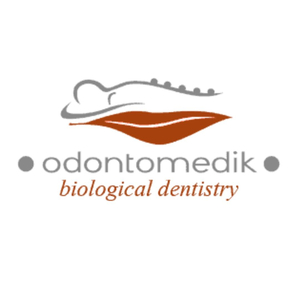





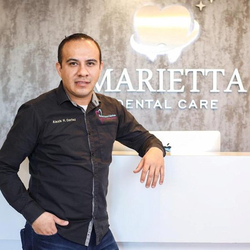
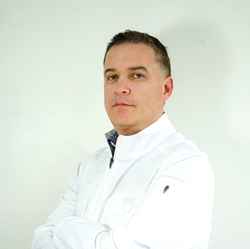

.png)

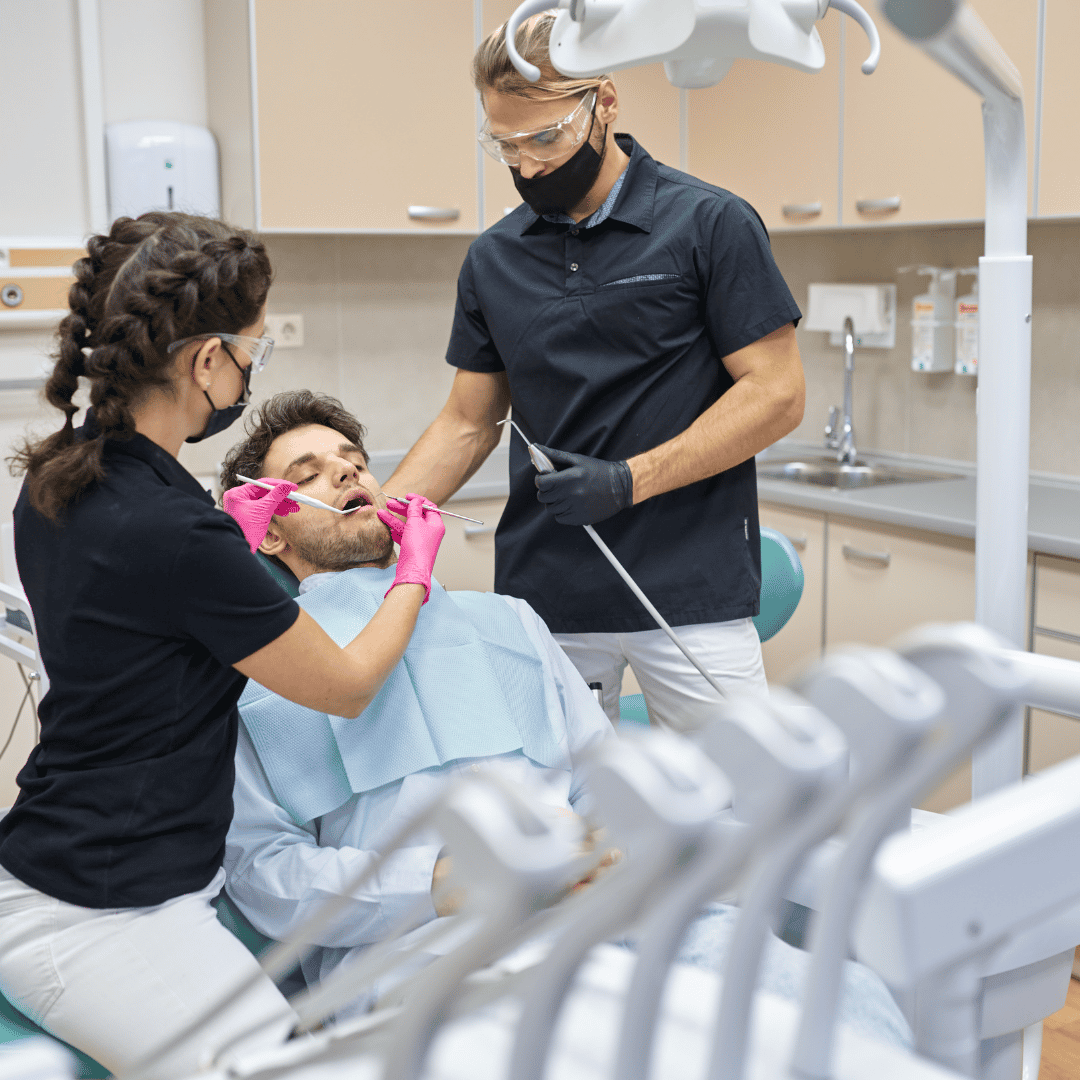
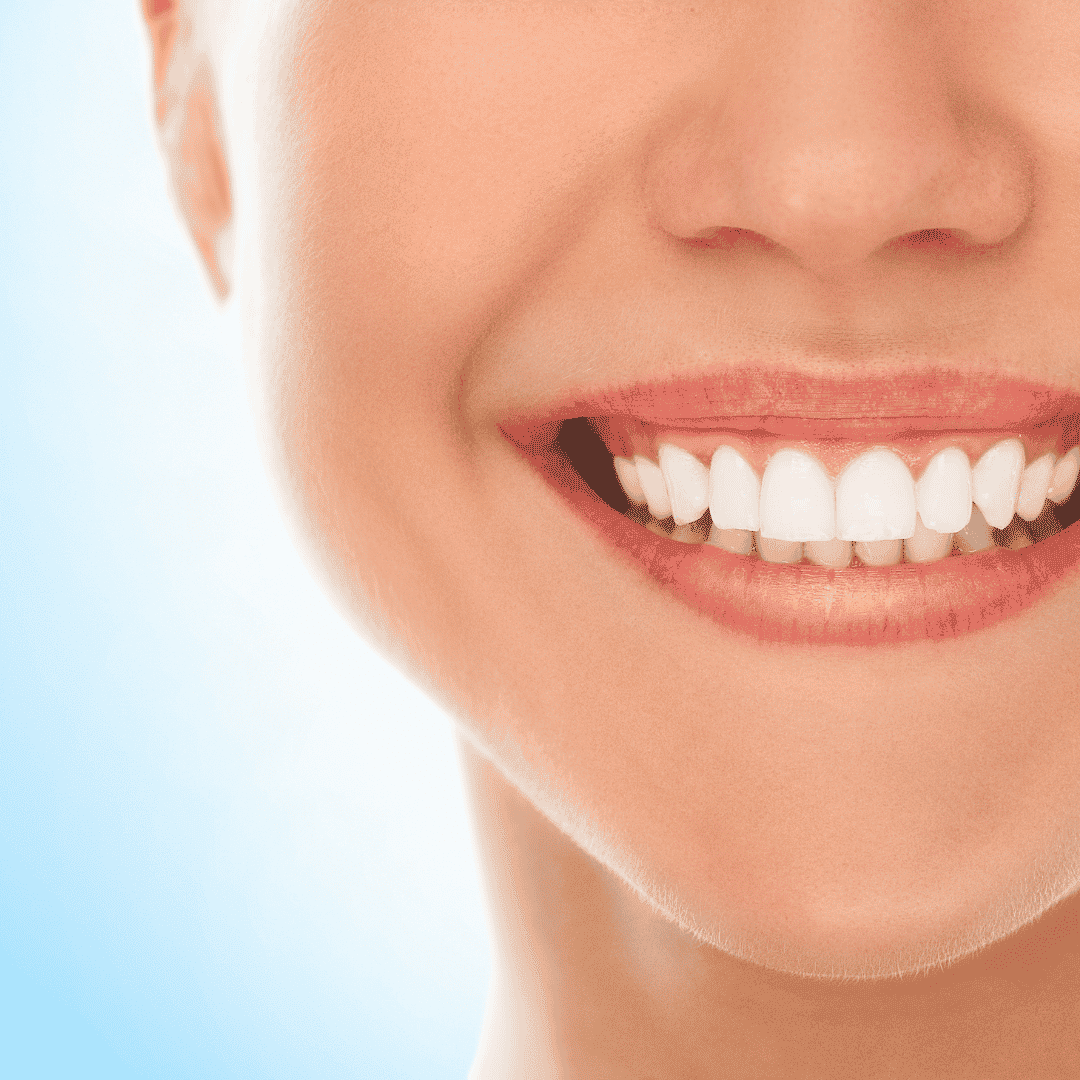


.png)

.png)
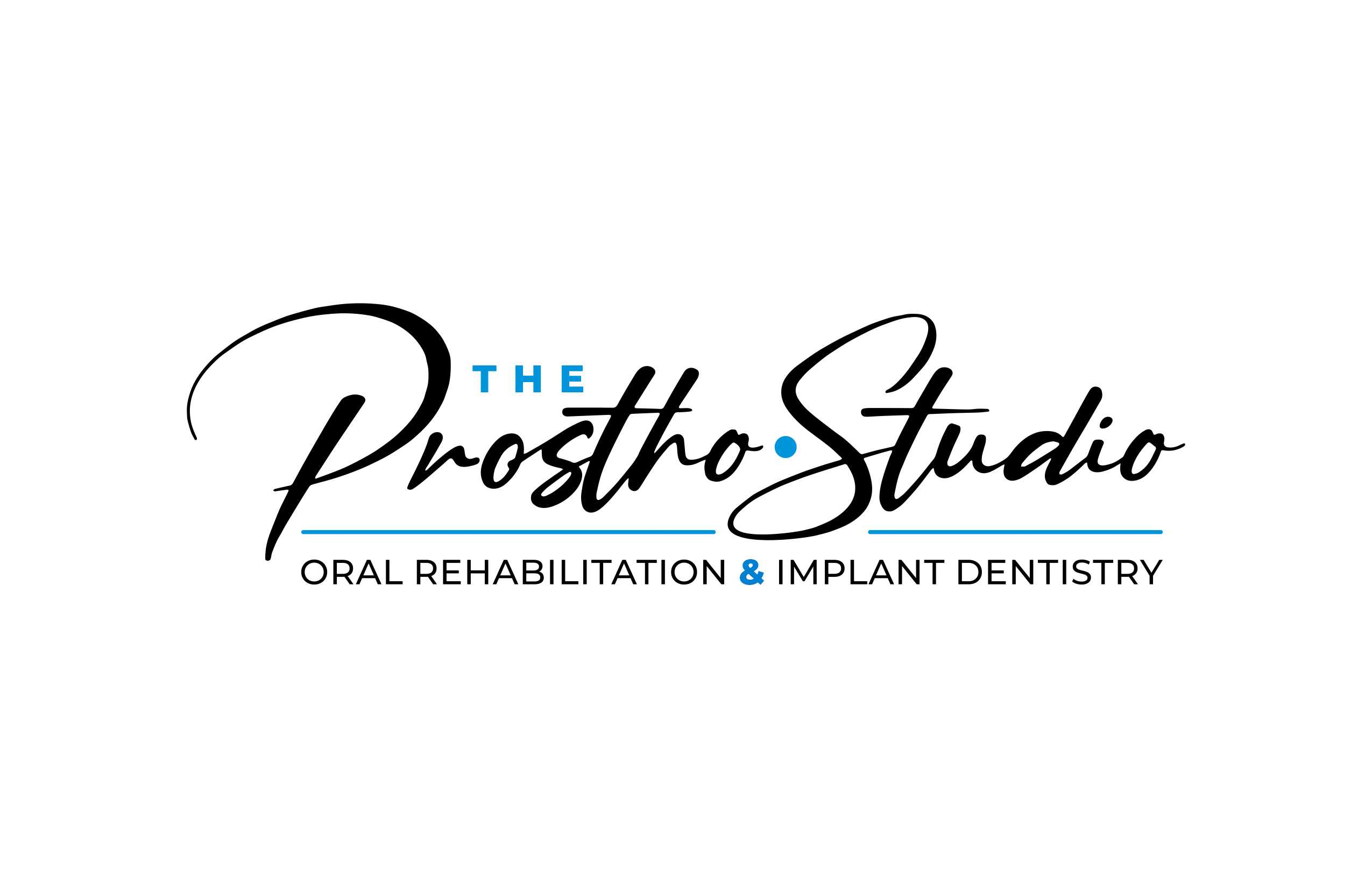
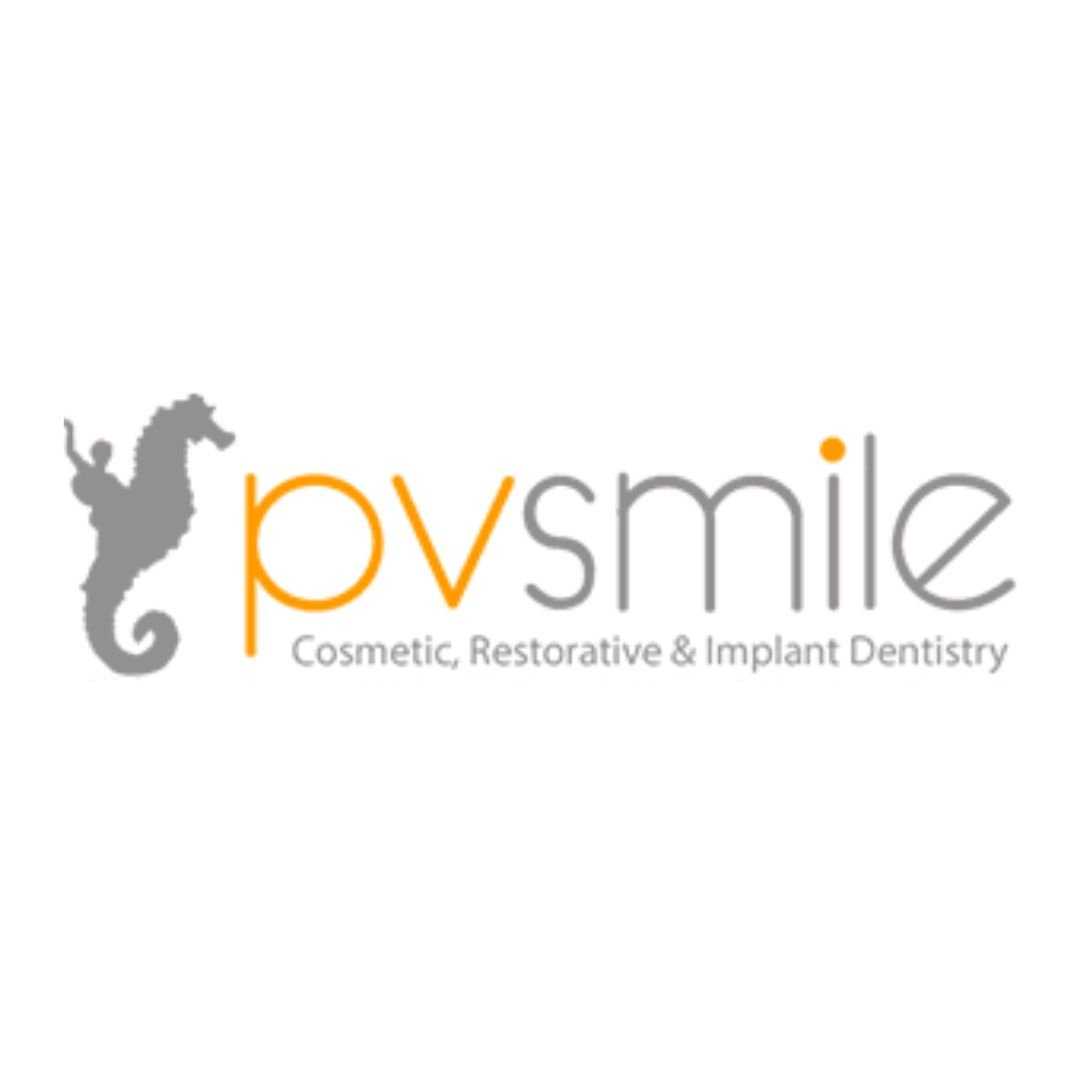
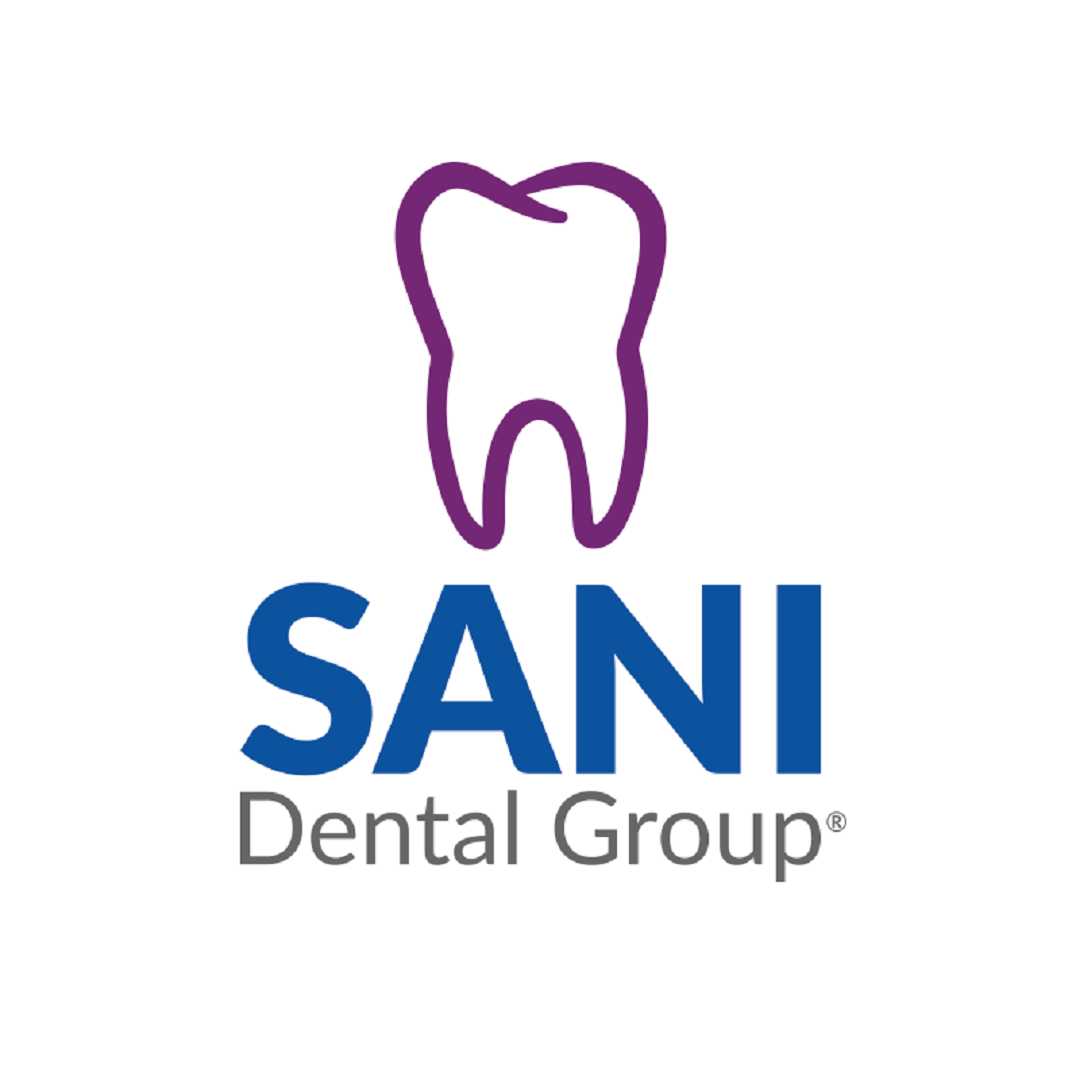
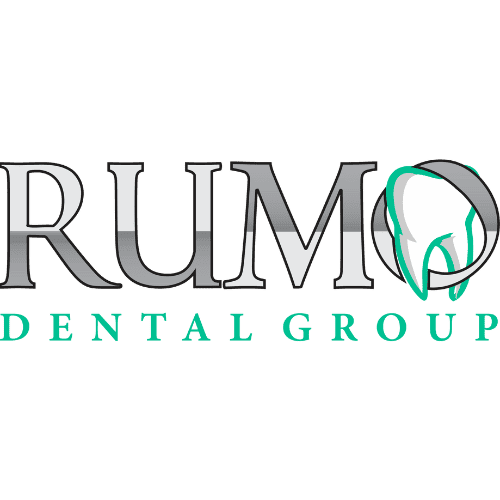
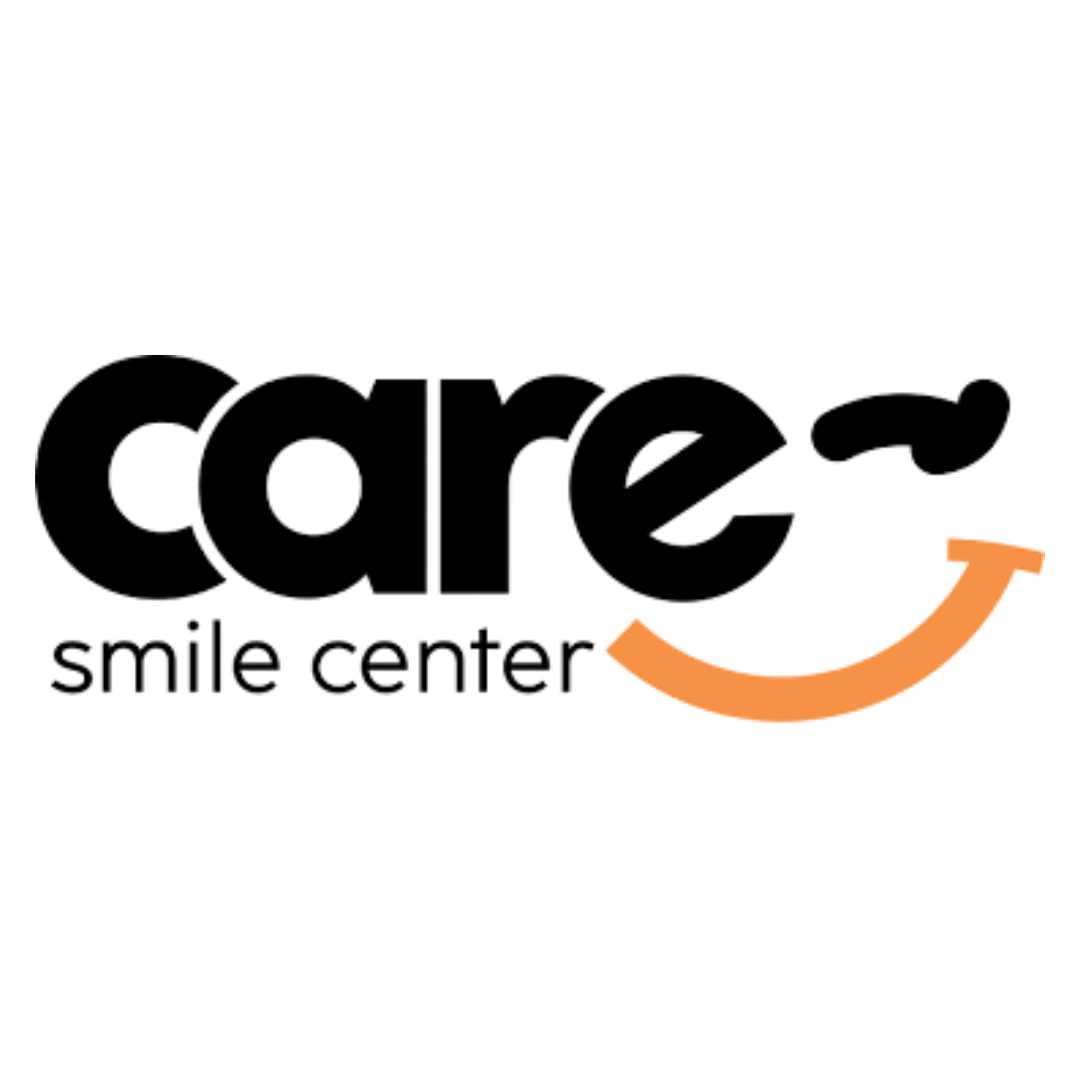

Share this listing